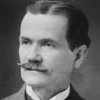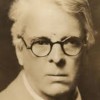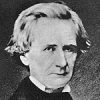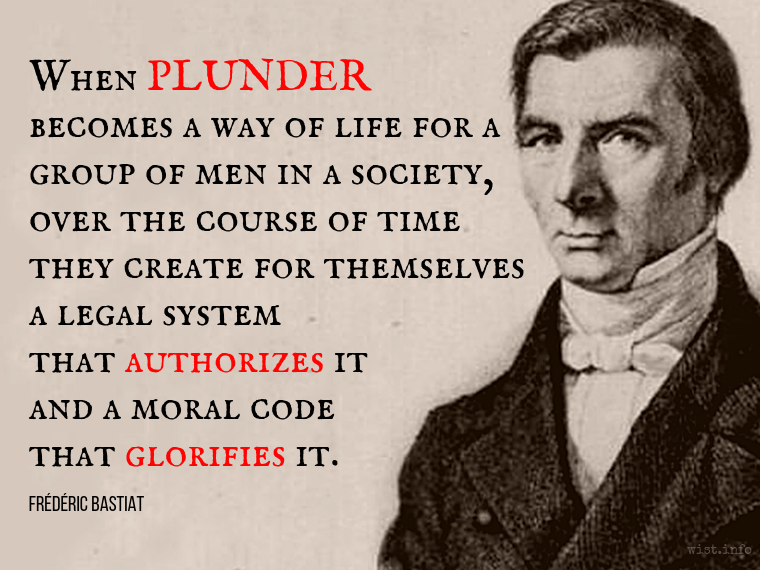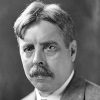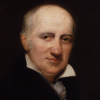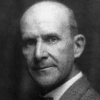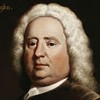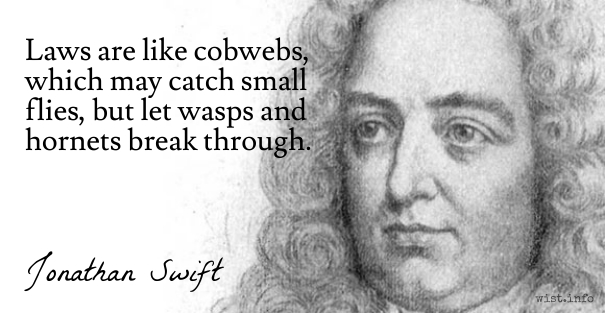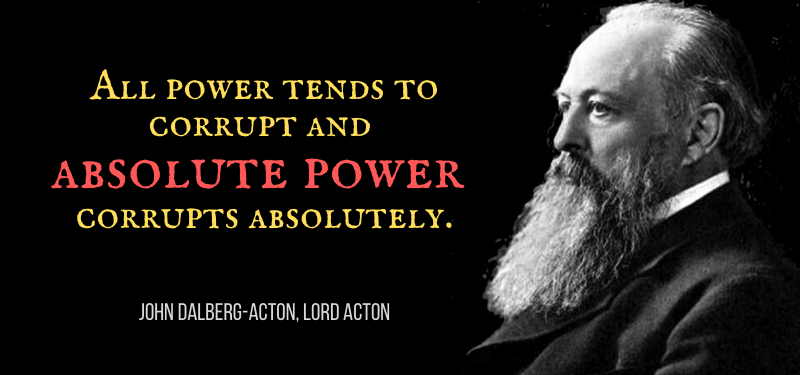What is the law? A thing that ought neither to be swayed by favor, nor be shattered by force, nor be corrupted by power.
[Quod enim est ius civile? Quod neque inflecti gratia neque perfringi potentia neque adulterari pecunia debeat.]
Marcus Tullius Cicero (106-43 BC) Roman orator, statesman, philosopher
Pro Caecina [For Aulus Caecina], ch. 26 / sec. 73 (c. 69 BC) [tr. @sentantiq (2013)]
(Source)
(Source (Latin)). Other translations:For, indeed, what is the civil law? A thing which can neither be bent by influence, nor broken down by power, nor adulterated by corruption.
[tr. Yonge (1856)]How may we describe it? The law is that which influence cannot bend, nor power break, nor wealth corrupt.
[tr. Grose Hodge (Loeb) (1927)]
Quotations about:
corruption
Note not all quotations have been tagged, so Search may find additional quotes on this topic.
The first sign of corrupt morals is the banishing of truth.
[Le premier traict de la corruption des mœurs, c’est le bannissement de la verité]
Michel de Montaigne (1533-1592) French essayist
Essays, Book 2, ch. 18 (2.18), “Of Giving the Lie [Du Démentir]” (1578–79) [tr. Screech (1987)]
(Source)
This essay (and this passage) appeared in the 1st (1580) edition, and was expanded in each succeeding edition.
(Source (French)). Alternate translations:The first part of customs-corruption, is the banishment of truth.
[tr. Florio (1603)]The first step to the corruption of manners is banishing of truth.
[tr. Cotton (1686)]The first thing done in the corruption of manners is banishing truth.
[tr. Cotton/Hazlitt (1877)]The first feature of corruption of morals is the banishment of truth.
[tr. Ives (1925)]The first feature in the corruption of morals is the banishment of truth.
[tr. Zeitlin (1934)]The first stage in the corruption of morals is the banishment of truth.
[tr. Frame (1943)]
It is not the young people that degenerate: they are not spoilt till those of maturer age are already sunk into corruption.
[Ce n’est point le peuple naissant qui dégénere ; il ne se perd que lorsque les hommes faits sont déja corrompus.]
Charles-Lewis de Secondat, Baron de Montesquieu (1689-1755) French political philosopher
Spirit of Laws [The Spirit of the Laws; De l’esprit des lois], Book 4, ch. 5 (4.5) (1748) [tr. Nugent (1750)]
(Source)
On society's need to educate the young into a love for the republic.
(Source (French)). Other translations:It is not young people who degenerate; they are ruined only when grown men have already been corrupted.
[tr. Cohler/Miller/Stone (1989)]It is not the rising people that degenerates ; it only declines when the fully-formed men are already corrupted.
[tr. Stewart (2018)]
GLOUCESTER: We have seen the best of our time. Machinations, hollowness, treachery, and all ruinous disorders follow us disquietly to our graves.
William Shakespeare (1564-1616) English dramatist and poet
King Lear, Act 1, sc. 2, l. 118ff (1.2.118-121) (1606)
(Source)
It is clear that the monarch who, through bad counsel or negligence, ceases to see that the laws are executed can easily repair the damage: he has only to get a new counsellor, or correct his own negligence. But when, in a popular government, the laws have ceased to be executed, since this can result only from corruption of the republic, the state is already undone.
[Il est clair encore que le monarque qui, par mauvais conseil ou par négligence, cesse de faire exécuter les loix, peut aisément réparer le mal ; il n’a qu’à changer de conseil, ou se corriger de cette négligence même. Mais lorsque, dans un gouvernement populaire, les loix ont cessé d’être exécutées, comme cela ne peut venir que de la corruption de la république, l’état est déja perdu.]
Charles-Lewis de Secondat, Baron de Montesquieu (1689-1755) French political philosopher
Spirit of Laws [The Spirit of the Laws; De l’esprit des lois], Book 3, ch. 3 (1748) [tr. Stewart (2018)]
(Source)
(Source (French)). Other translations:Clear it is also that a monarch, who through bad advice or indolence ceases to enforce the execution of the laws, may easily repair the evil: he has only to follow other advice; or to shake off this indolence. But when in popular government, there is a suspension of the laws, as this can proceed only from the corruption of the republic, the state is certainly undone.
[tr. Nugent (1750)]It is also clear that the monarch who ceases to see to the execution of the laws, though bad counsel or negligence, may easily repair the damage; he has only to change his counsel or correct his own negligence. But in a popular government when the laws have ceased to be executed, as this can only come from the corruption of the republic, the state is already lost.
[tr. Cohler/Miller/Stone (1989)]
For if once a man indulges himself in murder, very soon he comes to think little of robbing; and from robbing he comes next to drinking and Sabbath-breaking, and from that to incivility and procrastination. Once begin upon this downward path, you never know where to stop. Many a man has dated his ruin from some murder or other that perhaps he thought little of the time.
Thomas De Quincey (1785-1859) English writer, essayist, literary critic
Essay (1839-11), “Second Paper on Murder Considered as One of the Fine Arts,” Blackwood’s Edinburgh Magazine, Vol. 46, No. 289
(Source)
Some speculators have a short way of accounting for the Pagan religion: mere quackery, priestcraft, and dupery, say they; no sane man ever did believe it, — merely contrived to persuade other men, not worthy of the name of sane, to believe it! It will be often our duty to protest against this sort of hypothesis about men’s doings and history; and I here, on the very threshold, protest against it in reference to Paganism, and to all other isms by which man has ever for a length of time striven to walk in this world. They have all had a truth in them, or men would not have taken them up. Quackery and dupery do abound; in religions, above all in the more advanced decaying stages of religions, they have fearfully abounded: but quackery was never the originating influence in such things; it was not the health and life of such things, but their disease, the sure precursor of their being about to die!
Thomas Carlyle (1795-1881) Scottish essayist and historian
Lecture (1840-05-05), “The Hero as Divinity,” Home House, Portman Square, London
(Source)
The lecture notes were collected by Carlyle into On Heroes, Hero-Worship, & the Heroic in History, Lecture 1, (1841).
We know that war depresses public dialogue and debate, enlarges executive power, diminishes citizens’ rights, encourages governmental secrecy and deception, and deforms the outlines of human decency. Thus a government making war for the sake of peace, freedom, and human dignity — as it will never cease to declare — will curtail the rights of prisoners, resort to torture, deny its errors, exaggerate its virtues, demonize the enemy, and (as is inevitable in modern war) kill many innocent people, including, of course, many children.
Wendell Berry (b. 1934) American farmer, educator, poet, conservationist
Speech (2005-05-14), Commencement, Lindsey Wilson College, Columbia, Kentucky
(Source)
This was either excerpted from, or included in, his undated essay "Letter to Daniel Kemmis," collected in The Way of Ignorance and Other Essays, Part 2 (2005).
HIPPOLYTUS: Great crimes are never single, they are link’d
To former faults. He who has once transgress’d
May violate at last all that men hold
Most sacred; vice, like virtue, has degrees
Of progress; innocence was never seen
To sink at once into the lowest depths
Of guilt.[HIPPOLYTE: Quelques crimes toujours precedent les grands crimes.
Quiconque a pu franchir les bornes légitimes
Peut violer enfin les droits les plus sacrés ;
Ainsi que la vertu, le crime a ses degrés ;
Et jamais on n’a vu la timide innocence
Passer subitement à l’extrême licence.]Jean Racine (1639-1699) French dramatist
Phèdre [Phædra], Act 4, sc. 2, l. 1094ff (1677-01-01) [tr. Boswell (1897)]
(Source)
(Source (French)). Other translations:Crime, like virtue, hath degrees; one single day can not make a bad man just; nor can the good, in such short season, pass suddenly to utter baseness.
[tr. Heron (1858), 3.1]Some crimes always precede great crimes; whoever has overstepped the legitimate limits, may at last violate the most sacred rights; thus, as well as virtue, crime has its degrees, and we have never seen timid innocence pass suddenly into extreme licentiousness.
[tr. Mongan (1885)]Some lesser crimes always precede great sin.
He who hath once the bounds of right transgressed
May violate the most sacred laws at last;
But even as virtue, vice hath its degrees,
And modest innocence one never sees
Pass suddenly to wanton ways and lewd.
[tr. Lockert (1936)]A man who can transgress the lawful boundaries
may violate the most sacred rights in the end.
Like virtue, crime has its gradations;
Never has timid innocence
suddenly become extreme depravity.
[Unk.]Crime like virtue has its degrees; and timid innocence was never known to blossom suddenly into extreme license.
[Bartlett's]
The corruption of each government almost always begins with that of its principles.
[La corruption de chaque government commence presque toujours par celle des principes.]
Charles-Lewis de Secondat, Baron de Montesquieu (1689-1755) French political philosopher
Spirit of Laws [The Spirit of the Laws; De l’esprit des lois], Book 8, ch. 1 (1748) [tr. Cohler/Miller/Stone (1989)]
(Source)
(Source (French)). Other translations:The corruption of each government generally begins with that of the principles.
[tr. Nugent (1750)]The deterioration of a government begins almost always by the decay of its principles.
[ed. Hoyt (1896)]The corruption of each government almost always begins with the corruption of the principles.
[tr. Stewart (2018)
Adversity makes men; prosperity makes monsters.
[L’adversité fait l’homme, et le bonheur les monstres.]
Proverbs, Sayings, and Adages
French proverb
Variants:Often attributed to Victor Hugo, including from sources going back to the 19th Century (Ballou (1899)). I have not been able to find an actual citation or primary source.
- "Adversity makes men, but prosperity makes monsters."
- "Adversity makes men, and prosperity makes monsters."
- "Prosperity makes monsters, but adversity makes men."
It is also widely noted as an anonymous or proverbial saying (e.g., 1809, 1818).
It may well be a French proverb that was incorrectly attributed to Hugo (who wrote quite a bit on the subjects of adversity and prosperity) in order to have a name to hang off of it.
Take heed not to be transformed into a Caesar, not to be dipped in the purple dye; for it does happen.
[Ὅρα μὴ ἀποκαισαρωθῇς, μὴ βαφῇς: γίνεται γάρ.]
Marcus Aurelius (AD 121-180) Roman emperor (161-180), Stoic philosopher
Meditations [To Himself; Τὰ εἰς ἑαυτόν], Book 6, ch. 30 (6.30.1) (AD 161-180) [tr. Farquharson (1944)]
(Source)
Advising himself on the dangers of becoming emperor. Marcus coined a new Greek verb here (ἀποκαισαρόομαι), "to become like Caesar" (more broadly, "to assume the monarchy").
(Source (Greek)). Alternate translations:Take heed, lest of a philosopher thou become a mere Caesar in time, and receive a new tincture from the court. For it may happen if thou dost not take heed.
[tr. Casaubon (1634), 6.27]Have a care you han't too much of an Emperour in you, and that you don't fall into the liberties and Pride of your Predecessors. These Humours are easily learn'd, therefore guard against the Infection.
[tr. Collier (1701)]Take care you don’t degenerate into the manners of the Cesars, or be tinctured by them.
[tr. Hutcheson/Moor (1742)]Beware, when you take the title of Cæsar, that you do not insensibly assume too much of the Emperor; nor be infected with the haughty manners of some of your predecessors; for there is a possibility of such an event.
[tr. Graves (1792), 6.27]Take care that thou art not made into a Caesar, that thou art not dyed with this dye; for such things happen.
[tr. Long (1862)]Have care that you have not too much of a Cæsar in you, and that you are not dyed with that dye. This is easily learned, therefore guard against the infection.
[tr. Collier/Zimmern (1887)]See that you be not be-Cæsared, steeped in that dye, as too often happens.
[tr. Rendall (1898)]See to it that you fall not into Caesarism: avoid that stain, for it may come to you.
[tr. Hutcheson/Chrystal (1902)]See thou be not Caesarified, nor take that dye, for there is the possibility.
[tr. Haines (Loeb) (1916)]Be careful not to affect the monarch too much, or to be too deeply dyed with the purple; for this can well happen.
[tr. Staniforth (1964)]Take care that you are not turned into a Caesar, that you are not stained with the purple; for such things do come about.
[tr. Hard (1997 ed.; 2011 ed.)]To escape imperialization -- that indelible stain. It happens.
[tr. Hays (2003)]Take care not to be Caesarified, or dyed in purple: it happens.
[tr. Hammond (2006)]Take care you are not turned into a Caesar, or stained with the purple; these things do happen.
[tr. Gill (2013)]Beware of being Caesarified, be not stained by desire for power.
[ed. Taplin (2016)]
The principal difficulty lies, and the greatest care should be employed in constituting this Representative Assembly. It should be in miniature, an exact portrait of the people at large. It should think, feel, reason, and act like them. That it may be the interest of this Assembly to do strict justice at all times, it should be an equal representation, or in other words equal interest among the people should have equal interest in it. Great care should be taken to effect this, and to prevent unfair, partial, and corrupt elections.
John Adams (1735–1826) American lawyer, Founding Father, statesman, US President (1797–1801)
Letter (1776-04) to George Wythe, “Thoughts on Government”
(Source)
This is taken from the printed edition of the influential essay, believed to be from the version Adams sent to George Wythe of Virginia.
There are a handful of people whom money won’t spoil, and we all count ourselves among them.
Mignon McLaughlin (1913-1983) American journalist and author
The Second Neurotic’s Notebook, ch. 9 (1966)
(Source)
The truth unquestionably is, that the only path to a subversion of the republican system of the Country is, by flattering the prejudices of the people, and exciting their jealousies and apprehensions, to throw affairs into confusion, and bring on civil commotion. Tired at length of anarchy, or want of government, they may take shelter in the arms of monarchy for repose and security.
Alexander Hamilton (1757-1804) American statesman, author
Letter (1792-08-18) to George Washington, Enclosure: “Objections and Answers Respecting the Administration,” Objection 14
(Source)
You’d be amazed how quickly traditions and policies can be undermined by men and women with clever minds, clever tongues, and no principles.
John G. Hemry (b. 1956) American naval officer, author [pseud. Jack Campbell]
Triumphant, ch. 16 (2019) [as Jack Campbell]
(Source)
Alas for you, scribes and Pharisees, you hypocrites! You who are like whitewashed tombs that look handsome on the outside, but inside are full of dead men’s bones and every kind of corruption. In the same way you appear to people from the outside like good honest men, but inside you are full of hypocrisy and lawlessness.
[Οὐαὶ ὑμῖν, γραμματεῖς καὶ Φαρισαῖοι ὑποκριταί, ὅτι παρομοιάζετε τάφοις κεκονιαμένοις, οἵτινες ἔξωθεν μὲν φαίνονται ὡραῖοι, ἔσωθεν δὲ γέμουσιν ὀστέων νεκρῶν καὶ πάσης ἀκαθαρσίας. οὕτως καὶ ὑμεῖς ἔξωθεν μὲν φαίνεσθε τοῖς ἀνθρώποις δίκαιοι, ἔσωθεν δέ ἐστε μεστοὶ ὑποκρίσεως καὶ ἀνομίας.]
The Bible (The New Testament) (AD 1st - 2nd C) Christian sacred scripture
Matthew 23: 27-28 (Jesus) [JB (1966)]
(Source)
One of the seven condemnations Jesus makes against the scribes and Parisees (Matthew 23:13-32). While this section as a whole is paralleled in Luke 11:37-54, this particular metaphor is only in Matthew.
(Source (Greek)). Alternate translations:Woe unto you, scribes and Pharisees, hypocrites! for ye are like unto whited sepulchres, which indeed appear beautiful outward, but are within full of dead men’s bones, and of all uncleanness. Even so ye also outwardly appear righteous unto men, but within ye are full of hypocrisy and iniquity.
[KJV (1611)]How terrible for you, teachers of the Law and Pharisees! You hypocrites! You are like whitewashed tombs, which look fine on the outside but are full of bones and decaying corpses on the inside. In the same way, on the outside you appear good to everybody, but inside you are full of hypocrisy and sins.
[GNT (1966)]Alas for you, scribes and Pharisees, you hypocrites! You are like whitewashed tombs that look handsome on the outside, but inside are full of the bones of the dead and every kind of corruption. In just the same way, from the outside you look upright, but inside you are full of hypocrisy and lawlessness.
[NJB (1985)]How terrible it will be for you legal experts and Pharisees! Hypocrites! You are like whitewashed tombs. They look beautiful on the outside. But inside they are full of dead bones and all kinds of filth. In the same way you look righteous to people. But inside you are full of pretense and rebellion.
[CEB (2011)]Woe to you, scribes and Pharisees, hypocrites! For you are like whitewashed tombs, which on the outside look beautiful but inside are full of the bones of the dead and of all kinds of uncleanness. So you also on the outside look righteous to others, but inside you are full of hypocrisy and lawlessness.
[NRSV (2021 ed.)]
There is the moral of all human tales;
‘Tis but the same rehearsal of the past,
First Freedom, and then Glory — when that fails,
Wealth — Vice — Corruption, — Barbarism at last.George Gordon, Lord Byron (1788-1824) English poet
Childe Harold’s Pilgrimage, Canto 4, st. 108 (1818)
(Source)
It is not the desire for true riches that depraves man, but the desire for those that are false. A people never became corrupted for having grain, fruits, a pure air, better waters, more perfect arts, but for having gold, jewelry, subjects, power, a false renown, and an unjust superiority.
[Ce n’est pas le désir des vrais biens qui déprave l’homme, mais le désir de ceux qui sont faux. Jamais un peuple ne s’est corrompu, pour avoir du blé, des fruits, un air pur, des eaux meilleures, des arts plus parfaits, des femmes plus belles; mais pour avoir de l’or, des pierreries, des sujets, de la puissance, un faux renom et une injuste supériorité.]
Joseph Joubert (1754-1824) French moralist, philosopher, essayist, poet
Pensées [Thoughts], ch. 16 “Des Mœurs publiques et privées; du Caractère des Nations [On Morality and the Character of Nations],” ¶ 39 (1850 ed.) [tr. Calvert (1866), ch. 12]
(Source)
(Source (French)). This "thought" is not included in other translations I could find.
You must not lose faith in humanity. Humanity is an ocean; if a few drops of the ocean are dirty, the ocean does not become dirty.
Mohandas Gandhi (1869-1948) Indian lawyer, anti-colonial nationalist, political ethicist [Mahatma Gandhi]
Letter (1947-08-29) to Rajkumari Amrit Kaur
(Source)
Quoted in Louis Fischer, Gandhi: His Life and Message for the World, ch. 31 (1954)
It is not possible for the human imagination to conceive of the horrors of slavery. It has left no possible crime uncommitted, no possible cruelty unperpetrated. It has been practiced and defended by all nations in some form. It has been upheld by all religions. It has been defended by nearly every pulpit. From the profits derived from the slave trade churches have been built, cathedrals reared and priests paid. Slavery has been blessed by bishop, by cardinal, and by pope. It has received the sanction of statesmen, of kings, and of queens. It has been defended by the throne, the pulpit and the bench. Monarchs have shared in the profits. Clergymen have taken their part of the spoils, reciting passages of Scripture in its defence at the same time, and judges have taken their portion in the name of equity and law.
Robert Green Ingersoll (1833-1899) American lawyer, freethinker, orator
Speech (1876-07-04), “Centennial Oration [The Declaration of Independence],” Peoria, Illinois
(Source)
ALCESTE: His social polish can’t conceal his nature;
One sees at once that he’s a treacherous creature;
No one could possibly be taken in
By those soft speeches and that sugary grin.
The whole world knows the shady means by which
The low-brow’s grown so powerful and rich,
And risen to a rank so bright and high
That virtue can but blush, and merit sigh.
[Au travers de son masque on voit à plein le traître;
Partout il est connu pour tout ce qu’il peut être ;
Et ses roulements d’yeux, et son ton radouci
N’imposent qu’à des gens qui ne sont point d’ici.
On sait que ce pied plat, digne qu’on le confonde,
Par de sales emplois s’est poussé dans le monde,
Et que, par eux son sort de splendeur revêtu
Fait gronder le mérite et rougir la vertu.]Molière (1622-1673) French playwright, actor [stage name for Jean-Baptiste Poquelin]
Le Misanthrope, Act 1, sc. 1 (1666) [tr. Wilbur (1954)]
(Source)
(Source (French)). Alternate translations:You may plainly perceive the traitor through his mask; he is well known everywhere in his true colours; his rolling eyes and his honeyed tones impose only on those who do not know him. People are aware that this low-bred fellow, who deserves to be pilloried, has, by the dirtiest jobs, made his way in the world; and that the splendid position he has acquired makes merit repine and virtue blush.
[tr. Van Laun (1878)]The treacherous rascal is plainly seen through his mask, he is everywhere known for what he is; his rolling eyes and soft tones impose only upon strangers. People know that this wretched fellow, who ought to be hanged, has pushed his way in the world by dirty jobs, and that the splendid condition he finds himself in through them makes merit grumble and virtue blush.
[tr. Mathew (1890)]Behind his mask the knave is seen, wherever he is known, for what he is; the rolling of his eye, his bated voice, impose on none but those who do not live here. All others know that the sneaking fellow, fit only to be shunned, has by the foulest actions foisted himself upon society, where his career, by their connivance clothed in splendor, makes merit groan and virtue blush.
[tr. Wormeley (1894)]You can clearly see the traitor through his mask. He is known everywhere for what he is: his rolling eyes and his honeyed tones only impose on those people who do not know him. They know that this low-bred cur, who deserves to be exposed, has, by the dirtiest means, pushed himself on in the world; and the splendid position he has acquired by these means makes merit repine and virtue blush.
[tr. Waller (1903)]The traitor's face shows plainly through his mask,
And everywhere he's known for what he is;
His up-turned eyes, his honeyed canting voice,
Impose on none but strangers. All men know
That this confounded, low-bred, sneaking scamp
Has made his way by doing dirty jobs,
And that the splendid fortune these have brought him
Turns merit bitter and makes virtue blush.
[tr. Page (1913)]Behind his mask the scoundrel's visible.
Here everybody knows his character;
And his protesting eyes, his honeyed tongue,
Impose on no one but a casual stranger.
And that contemptible boor notoriously
Has made his way in the world by dirty means,
So that his present splendid situation
Makes merit grumble and makes virtue blush.
[tr. Bishop (1957)]Right through his mask men see the traitor's face,
And everywhere give him his proper place;
His wheedling eyes, his soft and cozening tone,
Fool only those to whom he is not known.
That this knave rose, where he deserved to fall,
By shameful methods, is well known to all,
And that his state, which thanks to these is lush,
Makes merit murmur and makes virtue blush.
[tr. Frame (1967)]
Nothing incites to money-crimes like great poverty or great wealth.
Mark Twain (1835-1910) American writer [pseud. of Samuel Clemens]
Quoted in Merle Johnson, ed., More Maxims of Mark (1927)
(Source)
Not found in a primary source. Johnson was a rare book collector who published the first thorough bibliography of Twain's works in 1910. His 1927 work is a 15-page pamphlet, generally considered authentic by scholars, but it provides no other context for the saying.
ALCESTE: Finding on every hand base flattery,
Injustice, fraud, self-interest, treachery …
Ah, it’s too much; mankind has grown so base,
I mean to break with the whole human race.[Je ne trouve partout que lâche flatterie,
Qu’injustice, intérêt, trahison, fourberie;
Je n’y puis plus tenir, j’enrage, et mon dessein
Est de rompre en visière à tout le genre humain.]Molière (1622-1673) French playwright, actor [stage name for Jean-Baptiste Poquelin]
Le Misanthrope, Act 1, sc. 1 (1666) [tr. Wilbur (1954)]
(Source)
(Source (French)). Alternate translations:Everywhere I find nothing but base flattery, in justice, self-interest, deceit, roguery. I cannot bear it any longer; I am furious; and my intention is to break with all mankind.
[tr. Van Laun (1878)]I find nothing anywhere but base flattery, injustice, interest, treachery, and knavery. I can contain myself no longer; I am. in a rage, and my purpose is to break off all intercourse with all mankind.
[tr. Mathew (1890)]Everywhere I find base flattery, injustice, self-interest, treachery, deceit. I cannot bear it any longer; I am enraged; and my intention is to tell the truth, henceforth, to all the human race.
[tr. Wormeley (1894)]Nothing is to be seen anywhere but base flattery, injustice, self-interest, deceit, roguery. I cannot bear it any longer: I am furious: and it is my intention to break a lance with all mankind.
[tr. Waller (1903)]There's nowhere aught but dastard flattery,
Injustice, treachery, selfishness, deceit;
I can't endure it, I go mad -- and mean
Squarely to break with all the human race.
[tr. Page (1913)]All I see everywhere is flattery,
Injustice, treason, selfishness, deceit.
It makes me furious; I cannot stand it;
I will defy the entire human race.
[tr. Bishop (1957)]Cowardly flattery is all I see,
Injustice, selfishness, fraud, treachery;
I've had my fill; it makes me mad; I plan
To clash head-on with the whole race of man.
[tr. Frame (1967)]
Money is miraculous. What miraculous facilities has it yielded, will it yield us; but also what never-imagined confusions, obscurations has it brought in; down almost to total extinction of the moral-sense in large masses of mankind!
Thomas Carlyle (1795-1881) Scottish essayist and historian
Past and Present, Book 3, ch. 10 “Plugson of Undershot” (1843)
(Source)
M… was talking about life and how things were going from bad to worse. “I once read,” he said, “that there’s nothing worse for everyone concerned than a reign that’s lasted too long. I’ve also heard that God is eternal. Need we say more?”
[A propos des choses de ce bas monde, qui vont de mal en pis, M… disait: J’ai lu quelque part qu’en politique il n’y avait rien de si malheureux pour les peuples que les règnes trop longs. J’entends dire que Dieu est éternal; tout est dit.]
Nicolas Chamfort (1741-1794) French writer, epigrammist (b. Nicolas-Sébastien Roch)
Products of Perfected Civilization [Produits de la Civilisation Perfectionnée], Part 2 “Characters and Anecdotes [Caractères et Anecdotes]” (1795) [tr. Parmée (2003), ¶ 318]
(Source)
(Source (French)). Alternate translations:Speaking of matters here below and how they go from bad to worse, M—— said, “I read somewhere that in politics nothing was so unfortunate for the people as reigns that lasted too long. I hear that God is eternal. There is nothing more to be said.”
[tr. Merwin (1969)]In politics ... nothing is as unfortunate for the people as reigns which last too long. I hear that God is eternal -- which says it all.
[tr. Dusinberre (1992), frag. 769]
He should die young who says he has neither erred, strayed or been deceived.
Minna Antrim (1861-1950) American epigrammatist, writer
Naked Truth and Veiled Allusions (1902)
(Source)
Big Business and Politics are twins, they are the monsters who kill everything, corrupt everything.
I believe there is no devil but fear.
Shew a good man his errour and he turnes it to a vertue, but an ill man doubles his fault.
George Herbert (1593-1633) Welsh priest, orator, poet.
Jacula Prudentum, or Outlandish Proverbs, Sentences, &c. (compiler), # 655 (1640 ed.)
(Source)
After awhile, when accusations are continually and sweepingly made against all men, good and bad, the public as a whole grow to believe that there is a little something bad about the decent man and that there is not much bad about the crook. No greater harm can be done to the body politic than by those men who, through reckless and indiscriminate accusation of good men and bad men, honest men and dishonest men alike, finally so hopelessly puzzle the public that they do not believe that any man in public life is entirely straight; while, on the other hand, they lose all indignation against the man who really is crooked.
Theodore Roosevelt (1858–1919) American politician, statesman, conservationist, writer, US President (1901–1909)
Speech (1910-08-29) “The Nation and the States,” Colorado State Legislature, Denver
(Source)
Collected in Roosevelt, The New Nationalism, Part 1 (1910).
Power is supposed to be so corrupt. I don’t think it’s so much corrupt, in the usual sense of the word, as stupid and unrealistic. The more power a person has, the further he gets from reality.
The Establishment is enlightened, tolerant, even well-meaning. It has never been exclusive, rather drawing in recruits from outside, as soon as they are ready to conform to its standards and become respectable. There is nothing more agreeable in this life than to make peace with the Establishment — and nothing more corrupting.
A. J. P. Taylor (1906-1990) British historian, journalist, broadcaster [Alan John Percivale Taylor]
“William Cobbett,” The New Statesman (1953-08-29)
(Source)
Taylor is often credited with coining the term "the Establishment" (what Cobbett called "the Thing"). The article, reviewing a biography of Cobbett, was collected in Taylor's Englishmen and Others (1956).
There nothing so sacred that money cannot corrupt it, and nothing so well defended that money cannot over throw it.
[Nihil esse tam sanctum quod non violari, nihil tam munitum quod non expugnari pecunia possit.]
Marcus Tullius Cicero (106-43 BC) Roman orator, statesman, philosopher
In Verrem [Against Verres; Verrine Orations], Action 1, ch. 2 / sec. 4 (1.2.4) (70 BC) [tr. Berry (2006)]
(Source)
Boast by Caius Verres (or so Cicero alleges).
Various translations vary as to whether this is 1.2.4 (which I have chosen) or 1.1.4 (as noted).
(Source (Latin)). Alternate translations:Nothing is so holy that it cannot be corrupted, or so strongly fortified that it cannot be stormed by money.
[tr. Yonge (1903), 1.1.4]No sanctuary is too holy for money to defile it, no fortress too strong for money to capture it.
[tr. Greenwood (1928)]Nothing, he declares, is too sacred to be corrupted by money; nothing too strong to resist its attack.
[tr. Grant (1960)]There is nothing so sacred that it cannot be sullied, nor anything so protected that it cannot be overcome by money.
[tr. @sententiq (2017), 1.1.4]There is no sanctuary so holy that money cannot profane it, no fortress so strong that money cannot take it by storm.
[Source]
To found the reward for virtuous actions on the approval of others is to choose too uncertain and shaky a foundation. Especially in an age as corrupt and ignorant as this, the good opinion of the people is a dishonor. Whom can you trust to see what is praiseworthy?
[De fonder la recompence des actions vertueuses, sur l’approbation d’autruy, c’est prendre un trop incertain et trouble fondement, signamment en un siecle corrompu et ignorant, comme cettuy cy la bonne estime du peuple est injurieuse. A qui vous fiez vous, de veoir ce qui est louable?]Michel de Montaigne (1533-1592) French essayist
Essays, Book 3, ch. 2 (3.2), “Of Repentance [Du Repentir]” (1586) [tr. Frame (1943)]
(Source)
This essay first appeared in the 1588 ed. The second sentence/phrase (on the age being so corrupt) and following were added for the 1595 ed.
(Source (French)). Alternate translations:To ground the recompence of vertuous actions, upon the approbation of others, is to undertake a most uncertaine or troubled foundation, namely in an age so corrupt and times so ignorant, as this is: the vulgar peoples good opinion is injurious. Whom trust you in seeing what is commendable?
[tr. Florio (1603)]To ground the Recompence of virtuous Actions upon the Approbation of others, is too uncertain and unsafe a Foundation; especially in so corrupt and ignorant an Age as this, the good Opinion of the Vulgar is injurious. Upon whom do you relie to shew you what is recommendable?
[tr. Cotton (1686)]To ground the recompense of virtuous actions upon the approbation of others is too uncertain and unsafe a foundation, especially in so corrupt and ignorant an age as this, wherein the good opinion of the vulgar is injurious: upon whom do you rely to show you what is recommendable?
[tr. Cotton/Hazlitt (1877)]To base the reward of virtuous actions on the approbation of others is to choose a too uncertain and obscure foundation. Especially in a corrupt and ignorant age like this, the good opinion of the vulgar is offensive; to whom do you trust to perceive what is praiseworthy?
[tr. Ives (1925)]Basing the recompense of virtuous deeds on another’s approbation is to accept too uncertain and confused a foundation -- especially since in a corrupt and ignorant period like our own to be in good esteem with the masses is an insult: whom would you trust to recognize what was worthy of praise!
[tr. Screech (1987)]
I have known nearly all the famous men of our age and I have seen them made wretched by this glorious passion for fame, and die after debauching their moral natures in its service.
[J’ai connu presque tous les hommes célèbres de notre tems, et que je les ai vus malheureux par cette belle passion de célébrité, et mourir, après avoir dégradé par elle leur caractère moral.]Nicolas Chamfort (1741-1794) French writer, epigrammist (b. Nicolas-Sébastien Roch)
Products of Perfected Civilization [Produits de la Civilisation Perfectionée], Part 1 “Maxims and Thoughts [Maximes et Pensées],” “Question” (1795) [tr. Merwin (1969)]
(Source)
(Source (French)). Alternate translation:I have known nearly every famous man in our times, and I have seen them unhappy through this pretty passion for celebrity, and die after having degraded their moral character for it.
[tr. Siniscalchi (1994)]
Sometimes when a person sees the roguery of poor people and the thievery of people in high positions, he is tempted to regard society as a forest full of robbers, the most dangerous of which are the policemen that are set up to stop the others.
[En voyant quelquefois les friponneries des petits et les brigandages des hommes en place, on est tenté de regarder la société comme un bois rempli de voleurs, dont les plus dangereux sont les archers, préposés pour arrêter les autres.]
Nicolas Chamfort (1741-1794) French writer, epigrammist (b. Nicolas-Sébastien Roch)
Products of Perfected Civilization [Produits de la Civilisation Perfectionée], Part 1 “Maxims and Thoughts [Maximes et Pensées],” ch. 3, ¶ 198 (1795) [tr. Siniscalchi (1994)]
(Source)
(Source (French)). Alternate translations:Seeing the rogueries of little men and the extortions of the great in office, one is tempted to look upon Society as a wood infested by robbers, the most dangerous being the constables sent to arrest the others.
[tr. Mathers (1926)]At times, seeing the petty thieveries of the petty, and the robberies of those in office, one is tempted to regard society as a wood full of thieves, of which the most dangerous are the officers set there to arrest the others.
[tr. Merwin (1969)]Sometimes, when one observes the rogueries perpetuated by petty people and the graft committed by men in office, one is tempted to think of society as a wood infested by thieves, of which the most dangerous are the archers, posted to prevent the others from escaping.
[tr. Pearson (1973)]There are times when, seeing the nasty tricks people get up to, the gross frauds of high officers, you're tempted to think that you're in a wood infested by thieves, amongst whom the most dangerous are the police, whose purpose is supposed to be that of arresting them.
[tr. Parmée (2003), ¶ 152]
Where large sums of money are concerned, it is advisable to trust nobody.
We come now to the third ground for abusing old age, and that is, that it is devoid of sensual pleasures. O glorious boon of age, if it does indeed free us from youth’s most vicious fault! Now listen, most noble young men, to what that remarkably great and distinguished man, Archytas of Tarentum, said in an ancient speech repeated to me when I was a young man serving with Quintus Maximus at Tarentum: “No more deadly curse,” said he, “has been given by nature to man than carnal pleasure, through eagerness for which the passions are driven recklessly and uncontrollably to its gratification. From it come treason and the overthrow of states; and from it spring secret and corrupt conferences with public foes. In short, there is no criminal purpose and no evil deed which the lust for pleasure will not drive men to undertake. Indeed, rape, adultery, and every like offence are set in motion by the enticements of pleasure and by nothing else; and since nature — or some god, perhaps — has given to man nothing more excellent than his intellect, therefore this divine gift has no deadlier foe than pleasure; for where lust holds despotic sway self-control has no place, and in pleasure’s realm there is not a single spot where virtue can put her foot.”
[Sequitur tertia vituperatio senectutis, quod eam carere dicunt voluptatibus. O praeclarum munus aetatis, si quidem id aufert a nobis, quod est in adulescentia vitiosissimum! Accipite enim, optimi adulescentes, veterem orationem Archytae Tarentini, magni in primis et praeclari viri, quae mihi tradita est cum essem adulescens Tarenti cum Q. Maximo. Nullam capitaliorem pestem quam voluptatem corporis hominibus dicebat a natura datam, cuius voluptatis avidae libidines temere et effrenate ad potiendum incitarentur. Hinc patriae proditiones, hinc rerum publicarum eversiones, hinc cum hostibus clandestina colloquia nasci; nullum denique scelus, nullum malum facinus esse, ad quod suscipiendum non libido voluptatis impelleret; stupra vero et adulteria et omne tale flagitium nullis excitari aliis illecebris nisi voluptatis; cumque homini sive natura sive quis deus nihil mente praestabilius dedisset, huic divino muneri ac dono nihil tam esse inimicum quam voluptatem. Nec enim lubidine dominante temperantiae locum esse, neque omnino in voluptatis regno virtutem posse consistere.]
Marcus Tullius Cicero (106-43 BC) Roman orator, statesman, philosopher
De Senectute [Cato Maior; On Old Age], ch. 12 / sec. 39ff (12.39-41) (44 BC) [tr. Falconer (1923)]
(Source)
(Source (Latin)). Alternate translations:Nowe folowith the iij vituperacion & defaute by the which yong men seyne that olde age is noiouse myschaunte & wretchid by cause it hath almost no flesshely delectacyons or sensualitees as for to gete with childeren and yssue to encrece and multiplie the world. To whom I answere forwith that it is right a noble gyfte rewarde & the right grete worship of olde age that it be sequestred depryved and dischargid of the delectacyons of sensualitee of the body or flesshely lustis for ys it be so that olde age be pryved and sequestred of such delectacyons It had takin awey from us olde men that thyng whiche is right vicious & right foule in the age of adolescence & yongthe.
And neverthelesshe my right good and lovyng yong men Scipion and Lelius an auncyent senatour purposid an oracion that a philosopher callid Archites made whiche was takyn of Haniballe duc of Cartage when he werrid in Ytaile. He was recoverde by Quintus Fabius the noble senatour when he recoverd Tarente, takyn by the said Haniballe. Archites was pryncypally a grete man connyngly lernyd in sciences and in vertues and was right famous and noble. This oracion purposid which Archites made was yeven to me when I adolescent and yong of age was at Tarente with the seid Fabius, and by this oracyon seid Archites that nature which ordeyned to men complexions gave nevir no pestelence peyne nor turment more damageable to yong men than is flesshely delectacyon. The coveitous playsirs of delectacyon moven tyce and steeren men over boldely and withoute bridell of reason or shame or any restraynt to execute and make an ende of their foule lustys. For thought delectacy∣ons ben made and conspired treasons divisions and dissencyons of countrees & the destruccions of their comon profite, and the secretes of parlementys disclosed to our ennemyes and adversarye partye there is noon untrou∣the there is noon evyll werke but pleasyre of delectacyon which shall constrayne men to encline therto, by cause that they enioyen owt of mesure of spousehode brekyng & that so fervently the cause of defoulyng of maydens virgins the anontry of weddyd women & all such corrupte untrew werkys, whiche ben nevir mevid nor undirtakyn but by the insolence & wantownes & wenlacys of flesshely delectacyon. Archites also saide that as nature by power of which god hath yeven to men noth̄yng bettir than is the soule by the which they have undirstondyng & mynde, also to that soule which is an office & a gift dyvine nothyng is so grete ennemye nor so contrary as ben flesshely delectacyons, for sith delectacyon & flesshely pleasir have dominacyon in the regyon of man. That is to witt in the courage of his body, the vertue of attemperance may not be lodgid therin & wthin the regyon of man which is yeven to delectacyon may not abyde any wisedome nor vertue.
[tr. Worcester/Worcester/Scrope (1481)]Now followeth the third dispraise and fault which is laid in old age, because (say they) it is without pleasure, and must forego voluptuous appetites. O noble and excellent gift, wherewith old age is so blessed, if it take from us that thing, which is in youth most vicious and detestable. But you (noble and virtuous gentlemen, Scipio and Laelius) hear what Archytas, the famous philosopher of Tarentum, was wont to say, whose oration touching on the same matter was lent and delivered to me, when I was a young man and served under Quintus Maximus at the siege of Tarentum. He said that no plague was given by nature so great and pernicious unto men, as the bestial pleasures and voluptuousness of the body: which which pleasures the dissolute and libidinous lusts of men do so much affect and desire, that with all licentious profanation and outrage, their minds be incited and stirred to pursue the same, thinking all things lawful for their unbridled appetites, so that they may enjoy their beastly desires and still wallow in the filthy puddle of their hellish sensuality. Hence (said he_ as from a fountain do spring out all kinds of mischief, as treason, betraying of countries, the ruin and subversion of commonwealths, secret conventicles, and privy conferences with the enemies; finally (he said), there was none so great a villainy, nor any so flagitious and horrible an enormity, which the inordinate desire of pleasure would not egg and prick forward men's froward wills to enterprise: furthermore, that whoredom, adultery, and all such like heinous facts of carnal concupiscency were by none other lures or enticements provoked but by pleasure. And whereas either nature or God hath given unto man nothing of so noble excellency as the mind or reasonable soul, there is nothing so great an enemy until this inestimable and divine gift as pleasure.
For where pleasure beareth away and ruleth the roast, there is no mansion or dwelling-place left for temperance and sobriety, and, to be short, virtue cannot remain where pleasure reigneth.
[tr. Newton (1569)]There followeth the third Objection to age; they say that it wanteth pleasures. Oh excellent gift of age, if it take away that which makes our youth vitious; therefore hear now, O yee excellent young men, the old oration of Architas the Tarentine, a singular and worthy man, which was delivered me when I was a young man with Q. Maximus at Tarentum. He said that there was no deadlier plague given by nature to men, then the pleasure of the body, the greedy lusts whereof are rash and unbrideledly, stirred up to get and gain. From hence are derived treasons, from hence arise the overthrowes of Commonwealths, and the privy conspiracies and whisperings with the enemies. That to conclude, there was no wickednesse, nor no evill deed, to the undertaking of which, the lust of pleasure did not incite a man; and that whoredome, adultery, and all such evill was stirred up by no other bait then pleasure. And forasmuch as nature, or some God, hath given nothing more excellent to a man, then his minde; to this divine gift, there is no greater enemy then pleasure. For lust bearing rule, there is no place for temperance, neither in the Kingdome of pleasure can virtue consist.
[tr. Austin (1648)]Now must I draw my forces 'gainst that Host
Of Pleasures, which i'th' Sea of age are lost.
Oh, thou most high transcendent gift of age!
Youth from its folly thus to disengage.
And now receive from me that most divine
Oration of that noble Tarentine,
Which at Tarentum I long since did hear;
When I attended the great Fabius there.
Yee Gods, was it man's Nature? or his Fate?
Betray'd him with sweet pleasures poyson'd bait?
Which he, with all designs of art, or power,
Doth with unbridled appetite devour;
And as all poysons seek the noblest part,
Pleasure possesses first the head and heart;
Intoxicating both, by them, she finds,
And burns the Sacred Temples of our Minds.
Furies, which Reasons divine chains had bound,
(That being broken) all the World confound.
Lust, Murder, Treason, Avarice, and Hell
It self broke loose; in Reason's Pallace dwell,
Truth, Honour, Justice, Temperance, are fled,
All her attendants into darkness led.
But why all this discourse? when pleasure's rage
Hath conquer'd reason, we must treat with age.
Age undermines, and will in time surprize
Her strongest Forts, and cut off all supplies.
And joyn'd in league with strong necessity,
Pleasure must flie, or else by famine die.v [tr. Denham (1669)]The third Accusation against Old Age is, that it deprives us of the Enjoyments of Pleasure. O glorious Priviledge of Age, if through thy means we can get rid of the most pernicious Bane, to which our You is liable! Give me leave to repeat to you, what a great Orator has said upon this Subject.
"Nature has not implanted in Man any more execrable Curse, than that of bodily Pleasures; to the gratification of which we are hurried on, wich such unbounded and licentious Appetites. For to what else is oweing the Subversion of so many States and Kingdoms? What Villainy too daring, what Undertaking too hazardous, which the Desire of satisfying our unbounded Lusts will not instigate us to attempt? To what are Rapes, Adulteries, or such like abominable Enormities owing, but to the gratification of our Appetites? And since the Faculties of Reason, and Judgment, are the most excellent Qualities, which Nature, or Providence, has conferred upon us; it is certain that nothing can be more destructive, more pernicious to this divine Gift, than the Indulging bodily Pleasures? For it is impossible to observe an Degrees of Temperance, while we are under the Dominion of our unruly Passions, nor can Virtue consiste with the pursuit of such Enjoyments."
[tr. Hemming (1716)]We come now to the Third Objection, which is, That Old Age is deprived of Pleasure. O excellent State! if it deprives us of what is most vitious in You! For, hear ye well-disposed young Men, the old Remark of Architas the Tarentine, a most ingenious Man, which was given to me when I was a young Fellow at Tarentum, with Q. Maximus. He said, "That Nature had not given Mankind a greater Plague than the Pleasure of the body, whose eager Desires for the Enjoyment of it, are altogether loose and unbridled: That from hence arise Conspiracies against our Country, Subversions of the Commonwealth, and treasonable Conferences with the Enemy. In short, that there was no Wickedness nor Capital Crime, but this Lust after Pleasure would put a man upon undertaking; that Whoredom, Adultery, and all such Vices, were excited by no other Allurements than those of Pleasure. That as Nature, or some God, had given to Man nothing more valuable than his Mind, so to that Gift was joined nothing so much its Enemy as Pleasure; for when Lust is predominant, there is no Room for Temperance; nor can Virtue possibly consist in Pleasure's Throne."
[tr. J. D. (1744)]The third Charge against Old-Age was, That it is (they say) insensible to Pleasure, and the Enjoyments arising from the Gratifications of the Senses. And a most blessed and heavenly Effect it truly is, if it eases of what in Youth was the sorest and cruellest Plague of Life. Pray listen, my good Friends, to an old Discourse of Archytas the Tarentine, a great and excellent Man in his Time, which I learned when I was but young myself, at Tarentum, under Fabius Maximus, at the Time he recovered that Place. The greatest Curse, the heaviest Plague, said he, derived on Man from Nature, is bodily Pleasure, when the Passions are indulged, and strong inordinate Desires are raised and set in Motion for obtaining it. For this have Men betray'd their Country; for this have States and Governments been plunged in Ruin; for this have treacherous Correspondences been held with publick Enemies: In short, there is no Mischief so horrid, no Villany so execrable, that this will not prompt to perpetrate. And as Adultery, and all the Crimes of that Tribe, are the natural Effects of it; so of course are all the fatal Consequences that ensue on them. 'Tis owned, that the most noble and excellent Gift of Heaven to Man, is his Reason: And 'tis as sure, that of all the Enemies Reason has to engage with, Pleasure is the most capital, and the most pernicious: For where its great Incentive, Lust, prevails, Temperance can have no Place; nor under the Dominion of Pleasure, can Virtue possibly subsist.
[tr. Logan (1750)]Let us now proceed to examine the third article of complaint against old age, as "bereaving us," it seems, "of the sensual gratifications." Happy effect indeed, if it deliver us from those snares which allure youth into some of the worst vices to which that age is addicted. Suffer me upon this occasion, my excellent young friends, to acquaint vou with the substance of a discourse which was held many years since by that illustrious philosopher Archytas, of Tarentum, as it was related to me when I was a young man in the army of Quintus Maximus, at the siege of that city. "Nature," said this illustrious sage, "has not conferred on mankind a more dangerous present than those pleasures which attend the sensual indulgences; as the passions they excite are too apt to run away with reason, in a lawless and unbridled pursuit of their respective enjoyments. It is in order to gratify inclinations of this ensnaring kind that men are tempted to hold clandestine correspondence with the enemies of the state, to subvert governments, and turn traitors to their country. In short, there is no sort of crimes that afiect the public welfare to which an inordinate love of the sensual pleasures may not directly lead. And as to vices of a more private tendency -- rapes, adulteries and every other flagitious violation of the moral duties -- are they not perpetrated solely from this single motive? Reason, on the other hand," continued Archytas," is the noblest gift which God, or nature, has bestowed on the sons of men. Now nothing is so great an enemy to that divine endowment, as the pleasures of sense. For neither temperance, nor any other of the more exalted virtues, can find a place in that breast which is under the dominion of the voluptuous passions."
[tr. Melmoth (1773)]The third charge against old age comes next, namely, that they say that it is without pleasures. O glorious privilege of old age, if indeed it takes away from us that which in youth is most faulty! For listen, excellent young men, to an ancient discourse of Archytas of Tarentum, a singularly great and renowned man, which was delivered to me when I was a young man with Quintus Maximus: He said, that no deadlier plague than the pleasure of the body was given to men by Nature; of which pleasure the passions being excessively fond, impelled men to enjoy them rashly and precipitously. That hence rose betrayals of country, hence subversions of states, hence clandestine correspondence with enemies. In a word, that there is no atrocity, no wicked deed, to the undertaking of which the lust of pleasure did not incite; and that seductions and adulteries, and every such crime, are called into existence by no other allurements but pleasure; and whereas, whether Nature or some deity had given nothing to man more excellent than the understanding, nothing was more hostile to this divine gift and endowment than pleasure. For neither, when lust bore sway, was there room for temperance, nor could virtue hold any place at all in the reign of pleasure.
[Cornish Bros. ed. (1847)]Then follows the third topic of blame against old age, that they say it has no pleasures. Oh, noble privilege of age! if indeed it takes from us that which is in youth the greatest defect. For listen, most excellent young men, to the ancient speech of Archytas of Tarentum, a man eminently great and illustrious, which was reported to me when I, a young man, was at Tarentum with Quintus Maximus. He said that no more deadly plague than the pleasure of the body was inflicted on men by nature; for the passions, greedy of that pleasure, were in a rash and unbridled manner incited to possess it; that hence arose treasons against one's country, hence the ruining of states, hence clandestine conferences with enemies: in short, that there was no crime, no wicked act, to the undertaking of which the lust of pleasure did not impel; but that fornications and adulteries and every such crime, were provoked by no other allurements than those of pleasure. And whereas either nature or some god had given to man nothing more excellent than his mind; that to this divine function and gift, nothing was so hostile as pleasure: since where lust bore sway, there was no room for self-restraint; and in the realm of pleasure, virtue could by no possibility exist.
[tr. Edmonds (1874)]I come now to the third charge against old age, that, as it is alleged, it lacks the pleasures of sense. O admirable service of old age, if indeed it takes from us what in youth is more harmful than all things else! For I would have you hear, young men, an ancient discourse of Archytas of Tarentum, a man of great distinction and celebrity, as it was repeated to me when in my youth I was at Tarentum with Quintus Maximus. "Man has received from nature," said he, "no more fatal scourge than bodily pleasure, by which the passions in their eagerness for gratification are made reckless and are released from all restraint. Hence spring treasons against one's country; hence, overthrows of states; hence, clandestine plottings with enemies. In fine, there is no form of guilt, no atrocity of evil, to the accomplishment of which men are not driven by lust for pleasure. Debaucheries, adulteries, and all enormities of that kind have no other inducing cause than the allurements of pleasure. Still more, while neither Nature nor any god has bestowed upon man aught more noble than mind, nothing is so hostile as pleasure to this divine endowment and gift. Nor while lust bears sway can self-restraint find place, nor under the reign of pleasure can virtue have any foothold whatever."
[tr. Peabody (1884)]The third charge against old age is that it LACKS SENSUAL PLEASURES. What a splendid service does old age render, if it takes from us the greatest blot of youth! Listen, my dear young friends, to a speech of Archytas of Tarentum, among the greatest and most illustrious of men, which was put into my hands when as a young man I was at Tarentum with Q. Maximus. "No more deadly curse than sensual pleasure has been inflicted on mankind by nature, to gratify which our wanton appetites are roused beyond all prudence or restraint. Fornications and adulteries, and every abomination of that kind, are brought about by the enticements of pleasure and by them alone. Intellect is the best gift of nature or God: to this divine gift and endowment there is nothing so inimical as pleasure. For when appetite is our master, there is no place for self-control; nor where pleasure reigns supreme can virtue hold its ground."
[tr. Shuckburgh (1895)]Thirdly, it is alleged against old age,
It has no sensual pleasures to enjoy.
Divinest gift of age, to take away sensual pleasures.
What is the greatest blot on youthful years!
Hear, my dear friends, a speech Archytas made
(Who was a very old and famous man),
And told me at Tarentum, where I was
With Quintus Maximus, when quite a youth:
'No greater curse than sensuality
Has Nature given to man: its foul desires
To feed, lust grows unbridled and unwise;
Hence countries are betrayed, states overthrown,
Secret arrangements with our foes are made.
There is no crime, no ill deed to which lust
Cannot entice : abominable vice
Of every kind is due to this alone.
Nature herself, or some kind deity
Has given to man no greater gift than mind:
But to this gift, this faculty divine,
No greater enemy can be than lust.
When that bears sway, all moderation's gone,
And 'neath its rule virtue cannot survive.
[tr. Allison (1916)]Next we come to the third allegation against old age. This was its deficiency in sensual pleasures. But if age really frees us from youth's most dangerous failing, then we are receiving a most blessed gift.
Let me tell you, my dear friends, what was said years ago by that outstandingly distinguished thinker, Archytas of Tarentum, the city at which I heard of his words when I was a young soldier serving under Fabius. "The most fatal curse given by nature to mankind," said Archytas, "is sensual greed: this incites men to gratify their lusts heedlessly and uncontrollably, thus bringing about national betrayals, revolutions, and secret negotiations with the enemy. Lust will drive men to every sin and crime under the sun. Mere lust, without any additiona impulse, is the cause of rape, adultery, and every other sexual outrage. Nature, or a god, has given human beings a mind as their outstanding possession, and this divine gift and endowment has no worse foe than sensuality. For in the realm of the physical passions there can be no room for self-control; where self-indulgence reigns, decent behavior is excluded.
[tr. Grant (1960, 1971 ed.)]I turn now to the third charge against old age -- one commonly leveled with vehemence: men say that it is cut off from pleasures. What a glorious blessing the years confer if they take away from us the greatest weakness that afflicts our younger days! Let me repeat to you, my dear young friends, what Archytas of Tarentum said many, many years ago. (He was one of the truly great -- a distinguished man -- and his discourse was reported to me when as a young man I visited Tarentum in the company of Quintus Maximus.) Archytas declared that nature had afflicted man with no plague more deadly than physical pleasure, since the hope of pleasure roused men’s desires to fever-pitch and spurred them on, like wild, unbridled beasts, to attainment.
Pleasure, he said, was the ultimate source of treason, of riot and rebellion, of clandestine negotiations with an enemy; to sum it up, there was no crime, no foul perversion, which men were not led to commit by the desire for pleasure. As for crimes of passion, adultery, and the like, he declared that pleasure and its blandishments were the sole cause of them "Here is man," said he. "Nature, or if you will, God, has given him nothing more precious and distinctive than his mind, yet nothing is so hostile to this blessing -- this godlike power -- as pleasure."
Further, he asserted that when the appetites had the upper hand there was no room left for self-discipline -- in fact, to put it generally, virtue could find no foothold anywhere in the kingdom of pleasure.
[tr. Copley (1967)]Now I come to the third reason why old age is so strenuously condemned: that when we are old we can’t enjoy sensual pleasures. On the contrary, what a gift it is that age takes away from us the most objectionable vices of the young! When I was a young man in the army, someone quoted to me from a speech -- and it is well worth listening to it today -- that was delivered long ago by a distinguished philosopher, Archytas of Tarentum. “Nature,” he said, “has never visited on man a more virulent pestilence than sex. There is nothing we will not do, however rash and ill-considered, in order to satisfy our desires. Sex has impelled men to treason, to revolution, to collusion with the enemy. Under the influence of sex, there is no criminal enterprise they will not undertake, no sin they will not commit. Infidelity, of course, and then any kind of depraved perversion you can think of -- all are driven by the search for sexual pleasure. Nature -- or perhaps some god -- has given us nothing more valuable than the power to reason; but there is nothing more inimical to reason than sex. Lust will always overcome self-control; there is no moral value that can stand up to the attacks of unbridled desire.”
[tr. Cobbold (2012)]THEY SAY OLD AGE DEPRIVES US OF ALMOST ALL OF THE PLEASURES. Oh, this is a wonderful gift of old age, if it does indeed relieve us of most of the reasons youth gets itself into trouble. Remember, you young folks, the famous warning from Dr. Johnson, the especially great and famous eighteenth century savant. I came to admire him when I was a young man at Oxford. He said that the body is all vice. The body's avid desire for the pleasures makes it seek them rashly and without control until it finds gratification. Oh the trouble! These things often create traitors of their countries: they ruin governments and cause secret dealings with enemies. The desire for bodily pleasure drives people to commit debauchery, adultery, and crimes of all sorts. Since nature's (or God's) greatest gift to mankind is our reason, nothing is so harmful to God's gift than the desire for pleasure because it makes us act so irrationally. By golly, when we are in hot pursuit of pleasure, there is no place for modration or good sense. If the pleasure is too great and lasts too long, it will blot out any trace of rational thinking.
[tr. Gerberding (2014)]Again old age is given a third censure.
It is devoid, they say, of sensual pleasure,
But that’s also a wonderful gift without price
Taking from us youth’s most wicked vice!
Listen, my good lads, to the time-honoured advice
Of Archytas from Tarentum, great and blessed,
Who in my young days his thoughts expressed,
While I was in Tarentum with Q. Maximus:
No evildoing can be worse than the voluptuous
Pleasure of the senses was his complaint
Which makes men blind and act with no restraint.
From it descend treason, revolution and
Pacts with the enemies of the Fatherland.
All evil actions and crimes combined
Have an urge for lust not far behind,
And then adultery and lewdness
Are set on fire by voluptuousness.
There must have been some god who gave mankind,
Or maybe it wasn’t a god but nature,
The divine privilege of the mind
Which is the enemy of pleasure.
Indeed under the rule of passion
Temperance has no place at all,
And virtue can be kept in thrall
By sensuality’s enticing coils.
[tr. Bozzi (2015)]We come now to the third objection to growing older -- that the pleasures of the flesh fade away. But if this is true, I say it is indeed a glorious gift that age frees us from youth's most destructive failing. Now listen, my most noble young friends, to the ancient words of that excellent and most distinguished young man, Archytas of Tarentum, repeated to me when I was serving as a young soldier in that very city with Quintus Maximus. He said the most fatal curse given to men by nature is sexual desire. From it spring passions of uncontrollable and reckless lust seeking gratification. From it come secret plotting with enemies, betrayals of one's country, and teh voer throw of governments. Indeed, there is no evil act, no unscrupulous deed that a man driven by lust will not perform. Uncontrolled sensuality will drive men to rape, adultery, and every other sexual outrage. And since nature -- or perhaps some god -- has given men no finer gift than human intelligence, this divine endowment has no greater foe than naked sensuality. Where lust rules, there is no place for self-control. And in the kingdom of self-indulgence, there is no room for decent behavior.
[tr. Freeman (2016)]The third typical criticism of old age follows this, and that is that people complain that it lacks [sexual] pleasures. Oh! Glorious wealth of age, if it takes that from us, the most criminal part of youth! Take this from me, most noble young men, this is the ancient speech of Archytas of Tarentum, which was repeated to me when I was a young man working for Quintus Maximus there: “Nature has given man no deadlier a curse than sexual desire.”
[tr. @sentantiq (2019)]
Those who believe it permissible to tell white lies soon grow color-blind.
Austin O'Malley (1858-1932) American ophthalmologist, professor of literature, aphorist
Keystones of Thought (1914)
(Source)
Ah, Constantine! what mischief in the gift —
Not thy conversion, but the dower you gave
For the first wealthy Father to receive.[Ahi, Costantin, di quanto mal fu matre,
non la tua conversion, ma quella dote
che da te prese il primo ricco patre!]Dante Alighieri (1265-1321) Italian poet
The Divine Comedy [Divina Commedia], Book 1 “Inferno,” Canto 19, l. 115ff (9.115-117) [Dante] (1309) [tr. Bannerman (1850)]
(Source)
According to legend, the Emperor Constantine, having been cured of leprosy through baptism by Pope Sylvester, both showered Sylvester with riches and moved his own capital to Constantinople, leaving the Pope as temporal ruler of the West. This "Donation of Constantine" was fabricated in the 8th century, and first used by Pope Adrian I to encourage Charlemagne to give generously and acknowledge papal power over the emperor. It was largely believed true until the 15th Century. Dante, both author and character, traced the Church's corruption by power and wealth from that legend.
(Source (Italian)). Alternate translations:Ah! Constantine, of how much ill was Cause
Not thy Conversion, but those rich Domains
That the first wealthy Pope received of thee!
[tr. Milton (1641)]Ah, Constantine, what are the many Ills
You have been parent of: I do not mean
By your Conversion, but that pompous Gift
By which our Holy Father you enrich'd!
[tr. Rogers (1782), l. 112ff]Lamented ever be that lib'ral hand,
Whose gifts allur'd the Apostolic band
To leave that humble path where long they trod.
[tr. Boyd (1802), st. 19]Ah, Constantine! to how much ill gave birth,
Not thy conversion, but that plenteous dower,
Which the first wealthy Father gain’d from thee!
[tr. Cary (1814)]Ah, Constantine! what ills have we to rue --
I say not from thine own conversion sprung,
But from thy dower, the first rich father drew!
[tr. Dayman (1843)]Ah Constantine! to how much ill gave birth, not thy conversion, but that dower which the first rich Father took from thee!
[tr. Carlyle (1849)]Oh, Constantine, of how much ill the source!
Not thy conversion, but that fatal dower
Which the first Father took from the in gift!
[tr. Johnston (1867)]Ah, Constantine! of how much ill was mother,
Not thy conversion, but that marriage-dower
Which the first wealthy Father took from thee!
[tr. Longfellow (1867)]Ah, Constantine, of how great ill was mother, not thy conversion, but that dowry which the first rich pope got from thee!
[tr. Butler (1885)]Ah, Constantine, of how much ill was cause,
Not thy conversion but the fatal dower
Which the first wealthy father from thee draws!
[tr. Minchin (1885)]Ah Constantine! of how much ill was mother, not thy conversion, but that dowry which the first rich Father received from thee!
[tr. Norton (1892)]Ah! Constantine, of how great ill was mother,
Not thy conversion, but that fatal dowry,
Which from thy hands received the first rich Father.
[tr. Griffith (1908)]Ah, Constantine, of how much evil gave birth,
not thy conversion, but that dower
the first rich Father had from thee.
[tr. Sinclair (1939)]Ah, Constantine, what evil fruit did bear
Not they conversion, but that dowry broad
Thou on the first rich Father didst confer!
[tr. Binyon (1943)]Ah, Constantine! What ills were gendered there --
No, not from thy conversion, but the dower
The first rich Pope received from thee as heir?
[tr. Sayers (1949)]Ah Constantine, what evil marked the hour --
not of your conversion, but of the fee
the first rich Father took from you in dower!
[tr. Ciardi (1954)]Ah, Constantine, of how much ill was mother, not your conversion, but that dowry which the first rich Father took from you!
[tr. Singleton (1970)]Oh, Constantine, what evil did you sire,
not by your conversion, but by the dower
that the first wealthy Father got from you!
[tr. Musa (1971)]Ah, Constantine, what wickedness was born --
and not from your conversion -- from the dower
that you bestowed upon the first rich father!
[tr. Mandelbaum (1980)]Ah, Constantine, how much ill you produced,
Not by your conversion, but by that endowment
Which the first rich father accepted from you.
[tr. Sisson (1981)]Ah Constantine! What measure of wickedness
Stems from that mother -- not your conversion, I mean:
Rather the dowry that the first rich Father
Accepted from you!
[tr. Pinsky (1994), l. 108ff]Ah, Constantine, not your conversion, but that dowry which the first rich father took from you, has been the mother of so much evil!
[tr. Durling (1996)]Ah, Constantine, how much evil you gave birth to, not in your conversion, but in that Donation that the first wealthy Pope, Sylvester, received from you!
[tr. Kline (2002)]What harm you mothered, Emperor Constantine!
Not your conversion but the dowry he --
that first rich Papa -- thus obtained from you!
[tr. Kirkpatrick (2006)]Ah, Constantine, to what evil you gave birth,
not by your conversion, but by the dowry
that the first rich Father had from you!
[tr. Hollander/Hollander (2007)]Ah, Constantine, the evil thrown in the world
Was not your conversion to Christ, but the wealth and grandeur
The first rich Pope and Father took from your hands!
[tr. Raffel (2010)]Constantine! You set the spurs
To evil, not by cleaving to your new
Religion, but by how, when you moved east,
You gave Sylvester, just to stay behind,
The Western Empire's wealth.
[tr. James (2013)]
People feel shameful to be poor and underprivileged in a well-run country. You should feel shameful if you are rich and aristocratic in a decadent and corrupt country.
[邦有道、貧且賤焉、恥也、邦無道、富且貴焉、恥也。]
Confucius (c. 551- c. 479 BC) Chinese philosopher, sage, politician [孔夫子 (Kǒng Fūzǐ, K'ung Fu-tzu, K'ung Fu Tse), 孔子 (Kǒngzǐ, Chungni), 孔丘 (Kǒng Qiū, K'ung Ch'iu)]
The Analects [論語, 论语, Lúnyǔ], Book 8, verse 13, sec. 3 (8.13.3) (6th C. BC – AD 3rd C.) [tr. Li (2020)]
(Source)
Brooks (below) says that this analect was added into Book 8 at the time of Book 14 being produced.
(Source (Chinese)). Alternate translations:When a country is well-governed, poverty and a mean condition are things to be ashamed of. When a country is ill-governed, riches and honour are things to be ashamed of.
[tr. Legge (1861)]Under a good government it will be a disgrace to him if he remain in poverty and low estate; under a bad one it would be equally disgraceful to him to hold riches and honours.
[tr. Jennings (1895)]When there is justice and order in the government of his own country, he should be ashamed to be poor and without honour; but when there is no justice in the government of his own country he should be ashamed to be rich and honoured.
[tr. Ku Hung-Ming (1898)]When law and order prevail in his State, he is ashamed to be needy and of no account. When law and order fail, he is ashamed to be in affluence and honour.
[tr. Soothill (1910)]When a state is functioning, poverty and meanness are shameful; when a state is in chaos (ill governed) riches and honours are shameful. [Let us say: under a corrupt government.]
[tr. Pound (1933)]When the Way prevails in your own land, count it a disgrace to be needy and obscure; when the Way does not prevail in your land, then count it a disgrace to be rich and honoured.
[tr. Waley (1938)]If a state is following The Right Way, it is a disgrace to be in poverty and a low estate therein; if not, it is a disgrace to be rich and honored therein.
[tr. Ware (1950)]It is a shameful matter to be poor and humble when the Way prevails in the state. Equally, it is a shameful matter to be rich and noble when the Way falls into disuse in the state.
[tr. Lau (1979)]When the Way prevails in your own state, to be made poor and obscure by it is a disgrace; but when teh Way does not prevail in your own state, to be made rich and honourable by it is a disgrace.
[tr. Dawson (1993)]In a country where the Way prevails, it is shameful to remain poor and obscure; in a country which has lost the Way, it is shameful to become rich and honored.
[tr. Leys (1997)]When the state possesses the Way and you are poor and lowly, it is a shame; when the state loses the Way and you are rich and noble, it is also a shame.
[tr. Huang (1997)]If the country is on the right way, it is the shame to be poor and low; If the country is not on the right way, it is the shame to be rich and honor.
[tr. Cai/Yu (1998), #201]It is a disgrace to remain poor and without rank when the way prevails in the state; it is a disgrace to be wealthy and of noble rank when it does not.
[tr. Ames/Rosemont (1998)]When the state has the Way, to be poor and humble in it is shameful; when the state has not the Way, to be wealthy and honored in it is shameful.
[tr. Brooks/Brooks (1998)]When the Way rules in your country, there's shame in poverty and obscurity; when the Way's lost in your country, there's shame in wealth and renown.
[tr. Hinton (1998)]In a state that has the Way, to be poor and of low status is a cause for shame; in a state that is without the Way, to be wealthy and honored is equally a cause for shame.
[tr. Slingerland (2003)]When the state follows the Way, being poor and lowly is a cause for shame. When the state is without the Way, being rich and eminent is a cause for shame.
[tr. Watson (2007)]When the moral way prevails in a state, being poor and lowly is a cause for shame. When the moral way does not prevail in the world, having wealth and position is a cause for shame.
[tr. Chin (2014)]
And thou hadst seen there,
If thou hadst had a hankering for such scurf,
That one, who by the Servant of the Servants
From Arno was transferred to Bacchiglione,
Where he has left his sin-excited nerves.[E vedervi,
s’avessi avuto di tal tigna brama,
colui potei che dal servo de’ servi
fu trasmutato d’Arno in Bacchiglione,
dove lasciò li mal protesi nervi.]Dante Alighieri (1265-1321) Italian poet
The Divine Comedy [Divina Commedia], Book 1 “Inferno,” Canto 15, l. 110ff (15.110-114) [Brunetto] (1309) [tr. Longfellow (1867)]
(Source)
Referring to Bishop Andrea de'Mozzi, one of the damned in the 7th Circle. In order to cover up de'Mozzi's continuous sexual scandals, Dante's enemy, Pope Boniface VIII (the "Servant of the Servants of God"), shuffled him from the See of Florence to that of Vicenza; he died there a year later.
There's also wordplay here around de'Mozzi's "unnatural vices" hidden in the last line of the Italian: "mal protesti nervi," which can mean "dissolute nerves" -- or, more suggestively, "ill-stretched muscles," or even "wrongly erect penis". Different translators vary as they (or the times) see fit. See Ciardi and Singleton for more commentary.
(Source (Italian)). Alternate translations:And, of such odious sights if fond, you him
May see, who by the Servants Servant was
To that which laves Vicenza's walls transferr'd
From Arno's river where he died contemn'd.
[tr. Rogers (1782), l. 108]He too is there, who late at Rome's request,
Forsook proud Florence for Vicenza's plain.
The living scandal of the hallow'd train,
'Till the kind clay his tainted limbs opprest.
[tr. Boyd (1802), st. 20]And, if the wish of so impure a blotch
Possess’d thee, him thou also might’st have seen,
Who by the servants’ servant was transferr’d
From Arno’s seat to Bacchiglione, where
His ill-strain’d nerves he left.
[tr. Cary (1814)]and, couldst thou crave
So leprous scab to see, was sight allowed
Of him to whom the servants' servant gave
Arno's to change for Bacchiglione's vale,
Wherein his ill-strung sinews found a grave.
[tr. Dayman (1843)]Also, if thou hadst had any longing for such scurf, thou mightest have seen
him there, who by the Servant of servants was translated from Arno to the Bacchiglionne, where he left his ill-strained nerves.
[tr. Carlyle (1849)]Even him you might have see, by servants' servant
From Arno taken to Bacchilion --
Abused, corrupted nerves to leave alone.
[tr. Bannerman (1850)]I could shew
If thou wouldst more of this uncleanness see,
Him by the servant's servant from the banks
Of Arno to Bacchiglione sent,
His foul-stretched members there in death to leave.
[tr. Johnston (1867)]And thou canst also see there, if thou hadst had a desire of such scurf, him who by the servant of servants was translated from Arno to Bacchiglione, where he left his nerves stretched to sin.
[tr. Butler (1885)]Thou might'st see
(If though hadst any whish to see such blame)
Him whom the slave of slaves translated free
From Arno's until Bacchiglione's tide,
Where all his rotten nerves he left in fee.
[tr. Minchin (1885)]And thou mightest also have seen, hadst thou had desire of such scurf, him who by the Servant of Servants was translated from Arno to Bacchiglione, where he left his ill-strained nerves.
[tr. Norton (1892)]And furthermore, thou mightest have looked, if thou hadst any care for suchlike scurf, on him who by the Servant of Servants was translated from the Arno to Bacchiglione, where he left his vice-warped senses.
[tr. Sullivan (1893)]And, if to see such scabs hadst had a craving,
Thou might'st see him who by the servants' servant
From Arno to Bacchilion was translated;
And there he left behind his sin-strained sinew.
[tr. Griffith (1908)]And if thou hast a craving for such scurf, him thou mightest see there that was translated by the Servant of Servants from the Arno to the Bacchiglione, where he left his sin-strained nerves behind.
[tr. Sinclair (1939)]And didst thou crave
Such scurf, thou mightest have seen and spoken to
Him who from Arno to Bacchiglon's wave
By the servant of God's servants was transferred,
And there his sinfully spent nerves outgave.
[tr. Binyon (1943)]Could thy hunger have been sated
By such scabbed meat, thou mightest have seen also
Him whom the Servant of servants once translated
From Arno to Bacchiglione, where he left
The body he'd unstrung and enervated.
[tr. Sayers (1949)]And also there,
if you had any longing for such scum,
you might have seen that one the Servant of Servants
send from the Arnot to the Bacchiglione
where he left his unnatural organ wrapped in cerements.
[tr. Ciardi (1954)]And you could also have seen there, had you hankered for such scurf, him who was transferred by the Servant of Servants form Arno to Bacchiglione, where he left his sinfully displayed muscles.
[tr. Singleton (1970)]And also there,
if you could have stomached such repugnancy,
you might have seen the one the Servant of Servants
transferred to the Bacchiglione from the Arno
where his sinfully-erected nerves were buried.
[tr. Musa (1971)]And among them you can see,
if you have any longing for such scurf,
the one the Servant of His Servants sent
from the Arno to the Bacchiglione's banks,
and there he left his tendons strained by sin.
[tr. Mandelbaum (1980)]And you might have seen,
If you had any taste for such pestilence,
Him who, by the servant of the servants,
Was translated from the Arno to the Bacchiglione,
Where he at last left his ill-stretched nerves.
[tr. Sisson (1981)]And if you crave
To see such scurf, among them you can find
One whom the Servant of Servants asked to leave
The Arno for Bacchiglione; and there
He left his body, distended in its nerve
And muscle.
[tr. Pinsky (1994)]And, if you had desired such scurf, you could see there
him who by the Servant of servants was transmuted from Arno to Bacchiglione, where he left his ill-protended muscles.
[tr. Durling (1996)]And if you had any desire for such scum, you might have seen Andrea di Mozzi there, who by Boniface, the Pope, servus servorum Dei, servant of servants, was translated from the Arno to Vicenza’s Bacchiglione, where he departed from his ill-strained body.
[tr. Kline (2002)]And if you yearn
to set your eyes on such-like mangy scabs,
you could. That bishop there! The Slave of Slaves
transferred him to Vicenza from the Arno.
He left his muscles, ill-distended, there.
[tr. Kirkpatrick (2006)]And, had you had
a hankering for such filth, you might have seen
the one transferred by the Servant of Servants
from the Arno to the Bacchiglione,
where he left his sin-stretched sinews.
[tr. Hollander/Hollander (2007)]And if you longed for
The company of such holy, but scurvy slime,
There's also Andrea de Mozzi, a bishop so strongly
Warped that the Servant of Servants was finally forced
To ship him off to Bacchiglione: he belonged there,
And died, left it his sin-stained body.
[tr. Raffel (2010)]And if you like scum you might see the man
Sent to Vicenza by the Pope, before
Florence should see his sin-worn nerves collapse:
Andrea de'Mozzi. Bishop, in your youth.
[tr. James (2013), l. 111ff]
Slavery is not good in itself: it is neither useful to the master nor to the slave, because the slave can do nothing from virtuous motives; nor to the master, because he contracts amongst his slaves all sorts of bad habits — he becomes haughty, passionate, obdurate, vindictive, voluptuous, and cruel.
[Il n’est pas bon par sa nature; il n’est utile ni au maître ni à l’esclave: à celui-ci, parce qu’il ne peut rien faire par vertu; à celui-là, parce qu’il contracte avec ses esclaves toutes sortes de mauvaises habitudes, qu’il s’accoutume insensiblement à manquer à toutes les vertus morales, qu’il devient fier, prompt, dur, colère, voluptueux, cruel.]
Charles-Lewis de Secondat, Baron de Montesquieu (1689-1755) French political philosopher
Spirit of Laws [The Spirit of the Laws; De l’esprit des lois], Book 15, ch. 1 (1748)
Common translation used by English and American abolitionists (e.g., 1812).(Source (French)). Other translations:The state of slavery is in its own nature bad. It is neither useful to the master nor to the slave; not to the slave, because he can do nothing through a motive of virtue; not to the master, because by having an unlimited authority over his slaves, he insensibly accustoms himself to the want of all moral virtues, and from thence grows fierce, hasty, severe, choleric, voluptuous, and cruel.
[tr. Nugent (1758 ed.)][Slavery] is not good by its nature; it is useful neither to the master nor to the slave: not to the slave, because he can do nothing from virtue; not to the master, because he contracts all sorts of bad habits from his slaves, because he imperceptibly grows accustomed to failing in all the moral virtues, because he grows proud, curt, harsh, angry, voluptuous, and cruel.
[tr. Cohler/Miller/Stone (1989)][Slavery] is not good by its nature; it is useful neither to the master nor to the slave: to the slave, because he can do nothing out of virtue; to the master, because he contracts all sorts of bad habits with his slaves, because he accustoms himself little by little to failing in all the moral virtues, and because he becomes proud, impetuous, mean, contentious, sensuous, and cruel.
[tr. Stewart (2018)]
PENTHEUS: Do you hold your rites
during the day or night?
DIONYSUS: Mostly by night.
The darkness is well suited to devotion.
PENTHEUS: Better suited to lechery and seducing women.
DIONYSUS: You can find debauchery by daylight too.[Πενθεύς: τὰ δ᾽ ἱερὰ νύκτωρ ἢ μεθ᾽ ἡμέραν τελεῖς;
Διόνυσος: νύκτωρ τὰ πολλά: σεμνότητ᾽ ἔχει σκότος.
Πενθεύς: τοῦτ᾽ ἐς γυναῖκας δόλιόν ἐστι καὶ σαθρόν.
Διόνυσος: κἀν ἡμέρᾳ τό γ᾽ αἰσχρὸν ἐξεύροι τις ἄν.]Euripides (485?-406? BC) Greek tragic dramatist
Bacchæ [Βάκχαι], l. 485ff (405 BC) [tr. Arrowsmith (1960)]
(Source)
(Source (Greek)). Alternate translations:PENTHEUS: By night or day these sacred rites perform'st thou ?
BACCHUS: Mostly by nighty for venerable is darkness.
PENTHEUS: To women this is treacherous and unsafe.
BACCHUS: E'en in the broadest day may shame be found.
[tr. Wodhull (1809)]PENTHEUS: Do you perform the rites by night or by day?
DIONYSUS: Mostly by night; darkness conveys awe.
PENTHEUS: This is treacherous towards women, and unsound.
DIONYSUS: Even during the day someone may devise what is shameful.
[tr. Buckley (1850)]PENTHEUS: Performest thou these rites by night or day?
DIONYSUS: Most part by night -- night hath more solemn awe.
PENTHEUS: A crafty rotten plot to catch our women.
DIONYSUS: Even in the day bad men can do bad deeds.
[tr. Milman (1865)]PENTHEUS: Dost thou perform thy rites by day; or night?
DIONYSUS: Chiefly by night; darkness gives dignity.
PENTHEUS: Craft rather and seduction it denotes.
DIONYSUS: Base acts are oft made manifest by day.
[tr. Rogers (1872), l. 462ff]PENTHEUS: Is it by night or day thou performest these devotions?
DIONYSUS: By night mostly; darkness lends solemnity.
PENTHEUS: Calculated to entrap and corrupt women.
DIONYSUS: Day too for that matter may discover shame.
[tr. Coleridge (1891)]PENTHEUS: By night or day dost thou perform his rites?
DIONYSUS: Chiefly by night: gloom lends solemnity.
PENTHEUS: Ay -- and for women snares of lewdness too.
DIONYSUS: In the day too may lewdness be devised.
[tr. Way (1898)]PENTHEUS: How is thy worship held, by night or day?
DIONYSUS: Most oft by night; 'tis a majestic thing,
The darkness.
PENTHEUS: Ha! with women worshipping?
'Tis craft and rottenness!
DIONYSUS: By day no less,
Whoso will seek may find unholiness.
[tr. Murray (1902)]PENTHEUS: Do you celebrate your sacred acts at night or by day?
DIONYSUS: At night for the most party. Darkness possesses solemnity.
PENTHEUS: Darkness for women is deceitful and corrupt!
DIONYSUS: Even in daytime one could discover disgraceful behavior.
[tr. Kirk (1970)]PENTHEUS: Do you celebrate your mysteries by night or by day?
DIONYSUS: Chiefly by night. Darkness induces religious awe.
PENTHEUS: For women darkness is treacherous and impure.
DIONYSUS: Impurity can be practiced by daylight too.
[tr. Vellacott (1973)]PENTHEUS: These sacred practices of your god, the worship,
The rites of great devotion, do they
Hold at night, or in the day.
DIONYSUS: [...] We hold our rites mostly at night
Because it is cooler. And the lamps
Lend atmosphere and feeling to the heart in worship.
[...]
PENTHEUS: And I say night hours are dangerous
Lascivious hours, lechery ....
DIONYSUS: You'll find debauchery in daylight, too.
[tr. Soyinka (1973)]PENTHEUS: The rites -- at night or by day you perform them?
DIONYSUS: At night, mostly; there’s majesty in darkness.
PENTHEUS: And for women there’s trickery and smut.
DIONYSUS: Even by day one may discover shame.
[tr. Neuburg (1988)]PENTHEUS: Do you perform your mysteries
during the day or by night?
DIONYSUS: Mostly at night.
The dark is more conducive to worship.
PENTHEUS: You mean to lechery and bringing out the filth in women.
DIONYSUS: Those who look for filth, can find it at the height of noon.
[tr. Cacoyannis (1982)]PENTHEUS: Do you worship in daylight or at night?
DIONYSUS: Mostly at night. Darkness is most sacred.
PENTHEUS: That is treacherous and unwholesome for women.
DIONYSUS: Some find shame even in daylight.
[tr. Blessington (1993)]PENTHEUS: Do you celebrate these sacred rites at night or in the day?
THE STRANGER: At night mostly, since darkness induces devotion.
PENTHEUS: No, darkness is devious and corrupts women.
THE STRANGER: Even in the day someone could devise shameful deeds.
[tr. Esposito (1998)]PENTHEUS: You practice this cult by night or by day?
DIONYSUS: Mostly at night. Darkness lends solemnity.
PENTHEUS: Darkness is just a filthy trap for women.
DIONYSUS: Some people can dig up dirt in daytime, too.
[tr. Woodruff (1999)]PENTHEUS: Do you perform the rites by day? -- or night?
DIONYSUS: Mostly at night -- because the darkness has its holiness.
PENTHEUS: It's treacherous, for women, and corrupts them.
DIONYSUS: What's shameful can be found even by light of day.
[tr. Gibbons/Segal (2000), l. 571ff]PENTHEUS: Do you practice your rites at night or by day?
DIONYSUS: Mostly at night: darkness lends solemnity.
PENTHEUS: This is an immoral trick aimed at women.
DIONYSUS: Someone could engage in shameful deeds even by day.
[tr. Kovacs (2002)]PENTHEUS: And you perform these practices at night?
DIONYSUS: Man's true nature's seen in darkness not in light.
PENTHEUS: While darkness shrouds a woman's true duplicity.
DIONYSUS: Duplicity's not found in night exclusively.
[tr. Teevan (2002)]PENTHEUS: Tell me, when do you hold your worship? By clear day, or dark night?
DIONYSUS: Mostly by night -- it is a majestic time.
PENTHEUS: Indeed! A majestic time to take advantage of women. Shameful!
DIONYSUS: There are enough shameful things done by day. And enough shameful thoughts in your head, I am sure!
[tr. Rao/Wolf (2004)]PENTHEUS: These ... holy orgies of yours… do you perform them during the day or in the night?
DIONYSUS: Most of them during the night. Darkness adds a certain modesty.
PENTHEUS: That’s quite a dubious thing for the women… and rather lecherous, I’d say.
DIONYSUS: Shame, of course can be seen during the day, too, if it exists and if one were to look for it.
[tr. Theodoridis (2005)]PENTHEUS: Do you conduct the mysteries in the night or by day?
DIONYSUS: Us'ally by night, for darkness holds reverence.
PENTHEUS: Is this thing deceitful or unwholesome towards women?
DIONYSUS: One might also uncover shameful things i' the day.
[tr. Valerie (2005)]PENTHEUS: When you dance these rites,
is it at night or during daylight hours?
DIONYSUS: Mainly at night. Shadows confer solemnity.
PENTHEUS: And deceive the women. It's all corrupt!
DIONYSUS: One can do shameful things in daylight, too.
[tr. Johnston (2008), l. 604ff]PENTHEUS: These mysteries. Do you practise them by day, or night?
DIONYSUS: Mostly by night. Dark is better for devotion.
PENTHEUS: Better for lechery and the taking of women.
DIONYSUS: That happens in daylight too.
[tr. Robertson (2014)]PENTHEUS: And are these rites conducted by day or by night?
DIONYSUS: Night, for the most part. It’s so much more ... spiritual. Good for devotion.
PENTHEUS: The night’s a trap for women’s virtue.
DIONYSUS: And the day isn’t? You don’t get out much, do you?
[tr. Pauly (2019)]PENTHEUS: Do you perform your rituals by day or night?
DIONYSUS: By night. We believe that darkness is holy.
PENTHEUS: It's a cunning time to force filth upon women.
DIONYSUS: Vice thrives in daylight, too.
[tr. Behr/Foster (2019)]PENTHEUS: Do you perform the sacred rites [hiera] by night or by day?
DIONYSUS: Mostly by night; darkness conveys awe.
PENTHEUS: This is treacherous towards women, and unsound.
DIONYSUS: Even during the day you can find what is shameful.
[tr. Buckley/Sens/Nagy (2020)]
Fraud, which so gnaweth at all men’s conscience,
A man may use on one who trusts him best
And on him also who risks no confidence.
This latter mode seems only to arrest
The love which Nature meaneth to endure;
Hence in the second circle huddled nest
Hypocrisy, flattery; they who would conjure
By spells; and simony; the thief, the cheat,
Pandars and barrators, and the like ordure.[La frode, ond’ogne coscïenza è morsa,
può l’omo usare in colui che ‘n lui fida
e in quel che fidanza non imborsa.
Questo modo di retro par ch’incida
pur lo vinco d’amor che fa natura;
onde nel cerchio secondo s’annida
ipocresia, lusinghe e chi affattura,
falsità, ladroneccio e simonia,
ruffian, baratti e simile lordura.]Dante Alighieri (1265-1321) Italian poet
The Divine Comedy [Divina Commedia], Book 1 “Inferno,” Canto 11, l. 52ff (11.52-60) [Virgil] (1309) [tr. Binyon (1943)]
(Source)
On the punishment of common fraudsters, who do not betray a personal trust but only the natural love of humanity. This is still deemed worse, in Dante's cosmology, than deadly "bestial" violence.
Barratry is the sale of justice, employment, or public offices, going alongside simony, the sale of holy offices.
(Source (Italian)). Alternate translations:That Fraud of which each Conscience feels the pangs
Man may commit 'gainst those who do confide
In him, as well as those who trust him not.
The first unhappily destroys the Bond
In general by Nature form'd: from whence
Confined in the second Circle are
The Hypocrites, the Flatterers, and they
Who practice Coz'ning, Sorcery, and Theft,
Base Simony, procuring with a smile,
Masked Deceit, and all such filthy tricks.
[tr. Rogers (1782), l. 53ff]Fraud skulks below with all her various brood,
There darkling dwell the foes of public good.
The pilf'rer, and the cheat, his dark ally:
With those, whose felon hand their trust betray'd,
Hypocrisy in faintly garb array'd.
Corruption foul, and frontless Perjury.
[tr. Boyd (1802), st. 8]Fraud, that in every conscience leaves a sting,
May be by man employ’d on one, whose trust
He wins, or on another who withholds
Strict confidence. Seems as the latter way
Broke but the bond of love which Nature makes.
Whence in the second circle have their nest
Dissimulation, witchcraft, flatteries,
Theft, falsehood, simony, all who seduce
To lust, or set their honesty at pawn,
With such vile scum as these.
[tr. Cary (1814)]Fraud, to the stricken conscience inly known,
Might man devise on him who faith disbursed,
And eke on him who credence had not shown.
The bond of love which nature framed at first.
But only that, the latter mode hath slain,
Whence nesting in the second orb lie curst
Hypocrites, and flatterers, and the wizard train,
Falseness, and simonies, and pilferers' trade,
Panders, and cheats, and all of foulest stain.
[tr. Dayman (1843)]Fraud, which gnaws every conscience, a man may practice upon one who confides in him; and upon him who reposes no confidence.
This latter mode seems only to cut off the bond of love which Nature makes: hence in the second circle nests
hypocrisy, flattery, sorcerers, cheating, theft and simony, pandars, barrators, and like filth.
[tr. Carlyle (1849)]And fraud, that every conscience can corrode --
Fraud may be practiced against them who trust,
And those who put no confidence in dust.
This seems to come behind, it only slays
The kindly chains of love that nature binds
Hence, in the lower circle, station finds
Hypocrisy, flattery and sorcery;
Falsification, robbery, simony,
Seduction, quarrels, and brutality.
[tr. Bannerman (1850)]That fraud, which sharply, ev'ry conscience bites,
Man against those who trust in him may use,
Or against those by whom no trust is giv'n.
This latter seems to rend in twain the bond
Which Nature in her love for us hath made;
Whence in the second circle such are held;
Magic, hypocrisy, and flatters,
Vile falsehood, robbery and simony,
Panders and Userers, and such foul stuff.
[tr. Johnston (1867)]Fraud, wherewithal is every conscience stung,
A man may practise upon him who trusts,
And him who doth no confidence imburse.
This latter mode, it would appear, dissevers
Only the bond of love which Nature makes;
Wherefore within the second circle nestle
Hypocrisy, flattery, and who deals in magic,
Falsification, theft, and simony,
Panders, and barrators, and the like filth.
[tr. Longfellow (1867)]The fraud, wherewith every conscience is pricked, man can practise towards the one who trusts him, and towards him who has no confidence in store. This latter mode seems to destroy only the bond of love that nature makes; whence in the second circle have their nests hypocrisy, flatteries, and whoso uses arts; forgery, robbery, and simony; pandars, jobbers, and suchlike filth.
[tr. Butler (1885)]Such fraud, for which all must compunction feel.
Can man exert 'gainst him whose trust he shares,
And him whose thoughts no confidence reveal.
This latter fashion all unseemly tears
The golden chain of love which Nature weaves.
Whence gather in the second circle's lairs
Hypocrisy, all flattery that deceives,
Witchcraft, lies, thefts, the Simoniac blot.
Panders, chicaners, and all similar thieves.
[tr. Minchin (1885)]Fraud, by which every conscience is bitten, man may practice on one that confides in him, or on one that owns no confidence. This latter mode seemeth to destroy only the bond of love that nature makes; wherefore in the second circle nestle hypocrisy, flatteries, and sorcerers, falsity, robbery, and simony, panders, barrators, and such like filth.
[tr. Norton (1892)]Fraud, with which there is no conscience but is bitten, a man may practise upon one who putteth his trust in him; and upon one who giveth no credit for fidelity. This last kind seemeth only to sever the bond of love which nature weaveth; and therefore is it that in the second circle there nestle hypocrisy, flattery, workers of sorcery, treachery, robbery and simony, panders, barrators, and such-like refuse.
[tr. Sullivan (1893)]Fraud, wherewithal is bitten every conscience,
A man may use regarding one who trusts him,
Or one who has no store of trust to deal with.
This latter way, as it would seem, slays only
The tie of love that nature itself fashions;
Whence make their nest within the second circle
Hypocrisy, smooth speeches, and bewitchment,
Forgery, thieving, and the sin of Simon,
Panders, and jobbers, and the like offscouring.
[tr. Griffith (1908)]Fraud, which always stings the conscience, a man may practice on one who confides in him or on one who does not so place his confidence; it is evident that this latter way destroys simply the bond of love which nature makes, so that in the next circle, hypocrisy, flatteries, sorceries, falsifications, theft, and simony, panders, jobbers, and like filth have their nest.
[tr. Sinclair (1939)]Fraud, which gnaws at every conscience, may be a breach
Of trust against the confiding, or deceive
Such as repose no confidence; though each
Is fraud, the latter sort seems but to cleave
The general bond of love and Nature's tie;
So the second circle opens to receive
Hypocrites, flatterers, dealers in sorcery,
Panders and cheats, and all such filthy stuff,
With theft, and simony and barratry.
[tr. Sayers (1949)]Fraud, which is a canker to every conscience,
may be practiced by a man on those who trust him,
and on those who have reposed no confidence.
This latter mode seems only to deny
the bond of love which all men have from Nature;
therefore within the second circle lie
simoniacs, sycophants, and hypocrites,
falsifiers, thieves, and sorcerers,
grafters, pimps, and all such filthy cheats.
[tr. Ciardi (1954)]Fraud, which gnaws at every conscience, a man may practice upon one who trusts in him, or upon one who reposes no condifence. This altter way seems to sever only the bond of love which nature makes; wherefore in the second circle hypocrisy, flatteries, sorcerers, falsity, theft, simony, panders, barratry, and like filth have their nest.
[tr. Singleton (1970)]Fraud, that gnaws the conscience of its servants,
can be used on one who puts his trust in you
or else on one who has no trust invested.
This latter sort seems only to destroy
the bond of love that Nature gives to man;
so in the second circle there are nests
of hypocrites, flatterers, dabblers in sorcery,
falsifiers, thieves and simonists,
panders, seducers, grafters and like filth.
[tr. Musa (1971)]Now fraud, that eats away at every conscience,
is praticed by a man against another
who trusts in him, or one who has no trust.
This latter way seems only to cut off
the bond of love that nature forges; thus,
nestled within the second circle are:
hypocrisy and flattery, sorcerers,
and falsifiers, simony, and theft,
and barrators and panders and like trash.
[tr. Mandelbaum (1980)]Fraud, by which every conscience is bitten,
A man may practice on a person who trusts him
Or upon one who has no confidence in him.
This latter mode cuts only the bond of love
Which nature itself establishes;
And so there are, lodged in the second circle,
Hypocrisy, flatterers, and those who delude,
Falsity, thieving and simony,
Pimps, trouble-makers, and all such-like scum.
[tr. Sisson (1981)]Fraud, which bites every conscience, a man may play
Either on one who trusts him, or one who does not.
The latter of the two is seen to destroy
Only those bonds of love that nature makes:
So in the second circle hypocrisy,
Flatterers, sorcery, larceny, simoniacs,
With pimps, barrators, and such filth have their nest.
[tr. Pinsky (1994), ll. 53-59]Fraud, which bites at every mind, a man can use against one who trusts in him or against one who has in his purse no cause for trust.
This latter mode seems to cut solely into the bond of love that Nature makes; thus in the second circle find their nest
hypocrisy, flattery, casters of spells, impersonators, thievery and simony, panders, embezzlers, and similar filth.
[tr. Durling (1996)]Human beings may practise deceit, which gnaws at every conscience, on one who trusts them, or on one who places no trust. This latter form of fraud only severs the bond of love that Nature created, and so, in the eighth circle, are nested hypocrisy; sorcery; flattery; cheating; theft and selling of holy orders; pimps; corrupters of public office; and similar filth.
[tr. Kline (2002)]As for deceit -- which gnaws all rational minds --
we practise this on those who trust in us,
or those whose pockets have no room for trust.
Fraud of the second kind will only gash
the ligature of love that Nature forms:
and therefore in great Circle Two there nests
smarm and hypocrisy, the casting-up of spells,
impersonation, thievery, crooked priests,
embezzlement and pimping, such like scum.
[tr. Kirkpatrick (2006)]Fraud gnaws at every conscience,
whether used on him who trusted
or on one who lacked such faith.
Fraud against the latter only severs
the bond of love that nature makes.
Thus in the second circle nest
hypocrisy, flatteries, and sorcerers;
lies, theft, and simony;
panders, barrators, and all such filth.[tr. Hollander/Hollander (2007)]Fraud will gnaw at the conscience, but a man may bury
His heart and cheat the people who believe in him --
But trust's not needed, just opportunity.
This sinning slices away the soft-tied tether
Of love, prepared for us by Nature. The second
Circle is therefore a nest for flatterers
And hypocrites and liars, and those who press
Illiterate fools for high Church office, well-paid
For their filthy work, and bawds, and all such festering
Sores.
[tr. Raffel (2010)]Fraud eats the conscience, whether used against
Those who trust us, or those who trust us not.
In the latter case, the bonds of love dispensed
By nature are undone. Thus you have got,
In Circle Eight, toadies and hypocrites,
Magicians, forgers, thieves, thugs, dealers in
Holy preferment, everything that fits
The definition of sheer filth.
[tr. James (2013)]
A conscience which has been bought once will be bought twice.
Norbert Wiener (1894-1964) American mathematician and philosopher
The Human Use of Human Beings, ch. 7 (1954)
(Source)
Evil communication corrupts good manners. I hope to live to hear that good communication corrects “bad manners.”
Benjamin Banneker (1731-1806) American naturalist, surveyor, almanac author, mathematician
Handwritten note in one of his almanacs
(Source)
Quoted in Friends' Intelligencer, vol. 11 (1854).
Whoever, in a prosperous station plac’d,
Is slothful and regardless of his household,
Intent on nought except bewitching song,
Will by his family, his friends, his country,
Be held in no esteem: for the best gifts
Of nature ineffectual prove, when pleasure,
Degrading pleasure, occupies the soul.[ἁνὴρ γὰρ ὅστις εὖ βίον κεκτηµένος
τὰ µὲν κατ’ οἴκους ἀµελίᾳ παρεὶς ἐᾷ,
µολπαῖσι δ’ ἡσθεὶς τοῦτ’ ἀεὶ θηρεύεται,
ἀγρὸς µὲν οἴκοι κἂν πόλει γενήσεται,
φίλοισι δ’οὐδείς· ἡ φύσις γὰρ οἴχεται,
ὅταν γλυκείας ἡδονῆς ἥσσων τις ᾗ.]Euripides (485?-406? BC) Greek tragic dramatist
Antiope [Αντιοπη], frag. 187 (TGF, Kannicht) [Zethus/ΖΗΘΟΣ] (c. 410 BC) [tr. Wodhall (1809)]
(Source)
(Source (Greek)). Barnes frag. 16, Musgrave frag. 29. See also frag. 200. Alternate translation:For any man who well acquires a livelihood
and permits its decline with his indifference,
and who delights himself with song and dance
and is always chasing it, will be idle at home and in the polis,
and a nobody for his friends; for a man’s nature is lost
when he is conquered by the sweetness of pleasure.
[tr. Will (2015)]
Know your major defect. Every talent is balanced by a fault, and if you give in to it, it will govern you like a tyrant.
[Conocer su defecto rey. Ninguno vive sin él, contrapeso de la prenda relevante; y si le favorece la inclinación, apodérase a lo tirano.]
Baltasar Gracián y Morales (1601-1658) Spanish Jesuit priest, writer, philosopher
The Art of Worldly Wisdom [Oráculo Manual y Arte de Prudencia], § 225 (1647) [tr. Maurer (1992)]
(Source)
(Source (Spanish)). Alternate translations:To know ones prevailing fault. Every one hath one, that makes a counterpoise to his predominant perfection. And if it be backt by inclination, it rules like a Tyrant.
[Flesher ed. (1685)]Know your chief fault. There lives none that has not in himself a counterbalance to his most conspicuous merit: if this be nourished by desire, it may grow to be a tyrant.
[tr. Jacobs (1892)]Know your chief weakness. No one lives without some counterweight to even his greatest gift, which when petted, assumes tyranny.
[tr. Fischer (1937)]
If I may be his guide, you’ll lose him yet;
I’ll subtly lead him my way, if you’ll let
Me do so; shall we have a bet?[Was wettet Ihr? den sollt Ihr noch verlieren!
Wenn Ihr mir die Erlaubnis gebt,
Ihn meine Straße sacht zu führen.]Johann Wolfgang von Goethe (1749-1832) German poet, statesman, scientist
Faust: a Tragedy [eine Tragödie], Part 1, sc. 3 “Prologue in Heaven,” l. 320ff [Mephistopheles] (1808-1829) [tr. Luke (1987)]
(Source)
Mephisto to the Lord, on tempting His servant, Faust.
Some translations (and this site) include the Declaration, Prelude on the Stage, and Prologue in Heaven as individual scenes; others do not, leading to their Part 1 scenes being numbered three lower.
(Source (German)). Alternate translations:What will you wager? Him you yet shall lose,
If you will give me your permission
To lead him gently on the path I choose.
[tr. Priest (1808)]What will you bet? -- now I am sure of winning --
Only, observe you give me full permission
To lead him softly on my path.
[tr. Shelley (1815)]What will you wager? you shall lose him yet, if you give me leave to guide him quietly my own way.
[tr. Hayward (1831)]What wilt thou wager? Him thou yet shall lose,
If leave to me thou wilt but give,
Gently to lead him as I choose!
[tr. Swanwick (1850)]What will you bet? You'll surely lose your wager!
If you will give me leave henceforth,
To lead him softly on, like an old stager.
[tr. Brooks (1868)]What will you bet? There's still a chance to gain him,
If unto me full leave you give,
Gently upon my road to train him!
[tr. Taylor (1870)]What wager you? you yet shall lose that soul!
Only give me full license, and you’ll see
How I shall lead him softly to my goal.
[tr. Blackie (1880)]What will you wager? Give me but permission
To lead him gently on my way,
I'll win him from you to perdition.
[tr. Latham (1908)]What will you bet? You'll lose him yet to me,
If you will graciously connive
That I may lead him carefully.
[tr. Kaufmann (1961)]What will you bet? You'll lose him in the end, if you'll just give me your permission to lead him gently down my street.
[tr. Salm (1962)]You'll lose him yet! I offer bet and tally,
Provided that your Honor gives
Me leave to lead him gently up my alley!
[tr. Arndt (1976)]Would you care to bet on that? You'll lose, I tell you,
If you'll give me leave to lead the fellow
Gently down my broad, my primrose path.
[tr. Greenberg (1992)]What would you wager? Will you challenge me
To win him from you? Give me your permission
To lead him down my path to his perdition?
[tr. Williams (1999)]What do you wager? I might win him yet!
If you give me your permission first,
I’ll lead him gently on the road I set.
[tr. Kline (2003)]
My opinion is that there would never have been an infidel, if there had never been a priest. The artificial structures they have built on the purest of all moral systems, for the purpose of deriving from it pence and power, revolts those who think for themselves, and who read in that system only what is really there.
Thomas Jefferson (1743-1826) American political philosopher, polymath, statesman, US President (1801-09)
Letter (1816-08-06) to Margaret Bayard Smith
(Source)
Authority has always attracted the lowest elements in the human race. All through history mankind has been bullied by scum. Those who lord it over their fellows and toss commands in every direction and would boss the grass in the meadows about which way to bend in the wind are the most depraved kind of prostitutes. They will submit to any indignity, perform any vile act, do anything to achieve power. The worst off-sloughings of the planet are the ingredients of sovereignty. Every government is a parliament of whores.
The trouble is, in a democracy, the whores are us.P. J. O'Rourke (b. 1947) American humorist, editor
Parliament of Whores, “At Home in the Parliament of Whores” (1991)
(Source)
Concluding words of the book.
To undermine the fundamental appeal of superheroes like Superman and Supergirl by re-casting them as anti-heroes at best or outright monsters — dragging imaginary childhood paragons off their pedestals to reinforce a fairly facile point about the tendency of real world heroes to exhibit feet of clay — struck me and strikes me still as imaginatively lazy.
Grant Morrison (b. 1960) Scottish comic book writer and playwright
“SUPERMAN and THE AUTHORITY annotations Pt 2,” blog entry (16 Feb 2022)
(Source)
“And if I turn back, refusing the road in its bitter end, where then shall I go among Elves or Men? Would you have me come to Gondor with this Thing, the Thing that drove your brother mad with desire? What spell would it work in Minas Tirith? Shall there be two cities of Minas Morgul, grinning at each other across a dead land filled with rottenness?”
“I would not have it so,” said Faramir.J.R.R. Tolkien (1892-1973) English writer, fabulist, philologist, academic [John Ronald Reuel Tolkien]
The Lord of the Rings, Vol. 2: The Two Towers, Book 4, ch. 6 “The Forbidden Pool” [Frodo and Faramir] (1954)
(Source)
Compassion is probably the only antitoxin of the soul. Where there is compassion even the most poisonous impulses remain relatively harmless. One would rather see the world run by men who set their hearts on toys but are accessible to pity, than by men animated by lofty ideals whose dedication makes them ruthless. In the chemistry of man’s soul, almost all noble attributes — courage, honor, hope, faith, duty, loyalty, etc. — can be transmuted into ruthlessness. Compassion alone stands apart from the continuous traffic between good and evil proceeding within us.
Eric Hoffer (1902-1983) American writer, philosopher, longshoreman
Passionate State of Mind, Aphorism 139 (1955)
(Source)
But much I fear, that when this great truth shall be re-established, its votaries will fall into the fatal error of fabricating formulas of creed and confessions of faith, the engines which so soon destroyed the religion of Jesus, and made of Christendom a mere Aceldama; that they will give up morals for mysteries, and Jesus for Plato. How much wiser are the Quakers, who, agreeing in the fundamental doctrines of the gospel, schismatize about no mysteries, and, keeping within the pale of common sense, suffer no speculative differences of opinion, any more than of feature, to impair the love of their brethren. Be this the wisdom of Unitarians, this the holy mantle which shall cover within its charitable circumference all who believe in one God, and who love their neighbor!
Thomas Jefferson (1743-1826) American political philosopher, polymath, statesman, US President (1801-09)
Letter (1822-06-26) to Benjamin Waterhouse
(Source)
“But if you’ll pardon my speaking out, I think my master was right. I wish you’d take his Ring. You’d put things to rights. You’d stop them digging up the Gaffer and turning him adrift. You’d make some folk pay for their dirty work.”
“I would,” she said. “That is how it would begin. But it would not stop with that, alas!”J.R.R. Tolkien (1892-1973) English writer, fabulist, philologist, academic [John Ronald Reuel Tolkien]
The Lord of the Rings, Vol. 1: The Fellowship of the Ring, Book 2, ch. 7 “The Mirror of Galadriel” [Sam and Galadriel] (1954)
(Source)
The rules are simple: they lie to us, we know they’re lying, they know we know they’re lying but they keep lying anyway, and we keep pretending to believe them.
Elena Gorokhova (b. 1955) Russo-American novelist, linguist, educator
A Mountain of Crumbs: A Memoir, ch. 13 (2010)
(Source)
On the relationship between the Soviet government and media and the Soviet people. Sometimes attributed to Aleksandr Solzhenitsyn.
Fascist movements have been “draining swamps” for generations. Publicizing false charges of corruption while engaging in corrupt practices is typical of fascist politics, and anti-corruption campaigns are frequently at the heart of fascist political movements. Fascist politicians characteristically decry corruption in the state they seek to take over, which is bizarre, given that fascist politicians themselves are invariably vastly more corrupt than those they seek to supplant or defeat.
Jason Stanley (b. 1969) American philosopher, epistemologist, academic
How Fascism Works: The Politics of Us and Them, ch. 2 (2018)
(Source)
The desire of power in excess caused the angels to fall; the desire of knowledge in excess caused man to fall; but in charity there is no excess, neither can angel or man come in danger by it.
Francis Bacon (1561-1626) English philosopher, scientist, author, statesman
“Of Goodness and Goodness of Nature,” Essays, No. 13 (1625)
(Source)
Often trimmed down to "In charity there is no excess."
“You are wise and powerful. Will you not take the Ring?”
“No!” cried Gandalf, springing to his feet. “With that power I should have power too great and terrible. And over me the Ring would gain a power still greater and more deadly.” His eyes flashed and his face was lit as by a fire within. “Do not tempt me! For I do not wish to become like the Dark Lord himself. Yet the way of the Ring to my heart is by pity, pity for weakness and the desire of strength to do good. Do not tempt me! I dare not take it, not even to keep it safe, unused. The wish to wield it would be too great for my strength. I shall have such need of it. Great perils lie before me.”J.R.R. Tolkien (1892-1973) English writer, fabulist, philologist, academic [John Ronald Reuel Tolkien]
The Lord of the Rings, Vol. 1: The Fellowship of the Ring, Book 1, ch. 2 “The Shadow of the Past” [Frodo and Gandalf] (1954)
(Source)
All things being equal, those who have more power are liable to sin more; no theorem in geometry is more certain than this.
[Caeteris paribus, on trouvera tousjours que ceux qui ont plus de puissance sont sujets à pécher davantage; et il n’y a point de théorème de géométrie qui soit plus asseuré que cette proposition.]
Gottfried Wilhelm Leibniz (1646-1716) German mathematician, philosopher, diplomat, polymath
Letter to Ernst, Landgrave of Hessen-Rheinfels (9 Jul 1688) [tr. Fasnacht (1952)]
(Source)
Quoted by John Dalberg, Lord Acton (and thus often attributed to him).
Acton's quotation was in his Inaugural Lecture on History, Cambridge (11 Jun 1895). In the lecture, after mentioning the academic precept "never be surprised by the crumbling of an idol or the disclosure of a skeleton; judge talent at its best and character at its worst; suspect power more than vice," he footnotes this Leibniz quotation (in its source French, with the Latin introduction). This was in turn translated into English in G. E. Fasnacht, Acton's Political Philosophy, ch. 6 (1952), after which it became erroneously cited by others to Acton.
The source letter (in which Leibniz is discussing the Jesuits) is collected in Gottfried Wilhelm Leibniz, Sämtliche Schriften und Briefe, Series 2, vol. 2, p. 278 (2009), reprinted in Stephen Voss, The Leibniz Arnauld Correspondence (2016) (the Source noted), which offers this alternate translation:Other things being equal, one will always find that those who have more power are subject to sin more. And there is no theorem of Geometry more sure than this proposition.
[tr. Voss (2016)]
We have now, it seems a National Bible Society, to propagate King James Bible, through all Nations. Would it not be better, to apply these pious Subscriptions, to purify Christendom from the corruptions of Christianity; than to propagate those Corruptions in Europe, Asia, Africa and America!
John Adams (1735–1826) American lawyer, Founding Father, statesman, US President (1797–1801)
Letter to Thomas Jefferson (4 Nov 1816)
(Source)
After the founding of the American Bible Society (11 May 1816).
Who are those who are really disloyal? Those who inflame racial hatreds, who sow religious and class dissensions. Those who subvert the Constitution by violating the freedom of the ballot box. Those who make a mockery of majority rule by the use of the filibuster. Those who impair democracy by denying equal educational facilities. Those who frustrate justice by lynch law or by making a farce of jury trials. Those who deny freedom of speech and of the press and of assembly. Those who press for special favors against the interest of the commonwealth. Those who regard public office as a source of private gain. Those who would exalt the military over the civil. Those who for selfish and private purposes stir up national antagonisms and expose the world to the ruin of war.
All the Sixties were complicated, you know. On the one hand it was funny too, you know; on the other hand it was cruel, you know. The Communists are so cruel, because they impose one taste on everybody, on everything, and who doesn’t comply with their teachings and with their ideology, is very soon labeled pervert, you know, or whatever they want you call it, or counterrevolutionary or whatever. And then the censorship itself, that’s not the worst evil. The worst evil is — and that’s the product of censorship — is the self-censorship, because that twists spines, that destroys my character because I have to think something else and say something else, I have to always control myself. I am stopping to being honest, I am becoming hypocrite — and that’s what they wanted, they wanted everybody to feel guilty, they were, you know… And also they were absolutely brilliant in one way, you know: they knew how effective is not to punish somebody who is guilty; what Communist Party members could afford to do was mind-boggling: they could do practically anything they wanted — steal, you know, lie, whatever. What was important — that they punished if you’re innocent, because that puts everybody, you know, puts fear in everybody.
Jan Tomáš "Miloš" Forman (1932-2018) Czech-American film director, screenwriter, actor, academic
National Security Archive interview (18 Jan 1997)
(Source)
To many white Americans, President Obama must have been corrupt, because his very occupation of the White House was a kind of corruption of the traditional order. When women attain positions of political power usually reserved for men — or when Muslims, blacks, Jews, homosexuals, or “cosmopolitans” profit or even share the public goods of a democracy, such as healthcare — that is perceived as corruption.
Jason Stanley (b. 1969) American philosopher, epistemologist, academic
How Fascism Works: The Politics of Us and Them, ch. 2 (2018)
(Source)
Vile deeds are vile, no matter whether we know or do not know what, after death, will be the fate of the doer. We know, at least, what his fate is now, namely to be wedded to the vileness.
Felix Adler (1851-1933) German-American educator
Life and Destiny, Lecture 9 “Ethical Outlook” (1903)
(Source)
What is blasphemy? I will give you a definition; I will give you my thought upon this subject. What is real blasphemy?
To live on the unpaid labor of other men — that is blasphemy.
To enslave your fellow-man, to put chains upon his body — that is blasphemy.
To enslave the minds of men, to put manacles upon the brain, padlocks upon the lips — that is blasphemy.
To deny what you believe to be true, to admit to be true what you believe to be a lie — that is blasphemy.
To strike the weak and unprotected, in order that you may gain the applause of the ignorant and superstitious mob — that is blasphemy.
To persecute the intelligent few, at the command of the ignorant many — that is blasphemy.
To forge chains, to build dungeons, for your honest fellow-men — that is blasphemy.
To pollute the souls of children with the dogma of eternal pain — that is blasphemy.
To violate your conscience — that is blasphemy.
The jury that gives an unjust verdict, and the judge who pronounces an unjust sentence, are blasphemers.
The man who bows to public opinion against his better judgment and against his honest conviction, is a blasphemer.
Robert Green Ingersoll (1833-1899) American lawyer, freethinker, orator
Speech to the Jury, Trial of C. B. Reynolds for Blasphemy, Morristown, New Jersey (May 1887)
(Source)
Allegiance to the group identity forged by political party affiliation renders Americans blind to the essential similarities between the agendas of the two parties, similarities that can be expected to be exactly the ones that run counter to public interest, in other words, those interests of the deep-pocketed backers of elections to which any politician must be subservient in order to raise the kind of money necessary to run for national office.
Jason Stanley (b. 1969) American philosopher, epistemologist, academic
How Propaganda Works, Introduction (2015)
(Source)
Preacher preaching love like vengeance
Preaching love like hate
Calling for large donations
Promising estates
Rolling lawns and angel bands
Behind the pearly gates
You know he will have his in this life
But yours will have to wait
He’s immaculately tax freeJoni Mitchell (b. 1943) Canadian singer-songwriter and painter [b. Roberta Joan Anderson]
“Tax Free” Joni Mitchell (1985)
(Source)
Few men, indeed, are so mad that they do not know when they are doing wrong. But so avid is their pursuit of goods that wrongdoing has become an element of all they do. To protest that fact is idle. Our politics, our business — little and big, our professions, our labor, are smitten in every facet with a corruption occasioned by reckless determination to make not just a reasonable profit but all the profit that can be wrung from every enterprise. Our commonest man, emulating his superiors, forges ahead with a brick on the safety valve of his conscience. Think over your morning paper in that light.
“It’s not as simple as that. It’s not a black and white issue. There are so many shades of grey.”
“Nope.”
“Pardon?”
“There’s no greys, only white that’s got grubby.”Terry Pratchett (1948-2015) English author
Discworld No. 23, Carpe Jugulum [Rev. Mightily Oats, Granny Weatherwax] (1998)
(Source)
The mistake is to assume that rulers who came to power through institutions cannot change or destroy those very institutions — even when that is exactly what they have announced that they will do.
Timothy Snyder (b. 1969) American historian, author
On Tyranny: Twenty Lessons from the Twentieth Century (2017)
(Source)
It is not pointless to acquire wealth but it is more evil than anything to get it from injustice.
[Χρήματα πορίζειν μὲν οὐκ ἀχρεῖον, ἐξ ἀδικίης δὲ πάντων κάκιον.]
Democritus (c. 460 BC - c. 370 BC) Greek philosopher
Frag. 78 (Diels) [tr. @sententiq (2018)]
(Source)
Original Greek. Diels citation "78. (74 N.) DEMOKRATES. 43."; collected in Joannes Stobaeus (Stobaios) Anthologium 4, 31, 21. Bakewell lists this under "The Golden Sayings of Democritus." Freeman notes this as one of the Gnômae, from a collection called "Maxims of Democratês," but because Stobaeus quotes many of these as "Maxims of Democritus," they are generally attributed to the latter. Alternate translations:
There is always someone ready to be lured to ruin by hope of gain.
[ἀλλ᾽ ὑπ᾽ ἐλπίδων ἄνδρας τὸ κέρδος πολλάκις διώλεσεν.]
Sophocles (496-406 BC) Greek tragic playwright
Antigone, l. 221ff [Creon] (441 BC) [tr. Watling (1947)]
(Source)
Original Greek. Alternate translations:
- "But backed by hope, lucre has ruined many." [tr. Donaldson (1848)]
- "Yet hope of gain hath lured men to their ruin oftentimes." [tr. Storr (1859)]
- "But hope of gain full oft ere now hath been the ruin of men." [tr. Campbell (1873)]
- "Yet by just the hope of it, money has many times corrupted men." [tr. Jebb (1891)]
- "Yet lucre hath oft ruined men through their hopes." [tr. Jebb (1917)]
- "Yet money talks, and the wisest have sometimes been known to count a few coins too many." [tr. Fitts/Fitzgerald (1939)]
- "But often we have known men to be ruined by the hope of profit." [tr. Wyckoff (1954)]
- "But love of gain has often lured a man to his destruction." [tr. Kitto (1962)]
- "But all too often the mere hope of money has ruined many men." [tr. Fagles (1982)]
- "But hope -- and bribery -- often have led men to destruction." [tr. Woodruff (2001)]
- "But profit with its hopes often destroys men." [tr. Tyrell/Bennett (2002)] https://diotima-doctafemina.org/translations/greek/sophocles-antigone/#post-1273:~:text=But%20profit,with%20its%20hopes%20often%20destroys%20men.
- "Yet there are men who the mere hope of winning has killed them." [tr. Theodoridis (2004)]
- "And yet men have often been destroyed because they hoped to profit in some way." [tr. Johnston (2005)]
- "But often profit has destroyed men through their hopes." [tr. Thomas (2005)]
- "But the profit-motive has destroyed many people in their hope for gain." [tr. @sentantiq (2018)]
We remark with pain that the indecent foreign dance called the Waltz was introduced (we believe, for the first time) at the English Court on Friday last. This is a circumstance which ought not to be passed over in silence. National morals depend on national habits: and it is quite sufficient to cast one’s eyes on the voluptuous intertwining of the limbs, and close compressure of the bodies, in this dance, to see that it is far indeed removed from the modest reserve which has hitherto been considered distinctive of English females. So long as this obscene display was confined to prostitutes and adulteresses, we did not think it deserving of notice; but now that it is attempted to be forced on the respectable classes of society by the evil example of their superiors, we feel it a duty to warn every parent against exposing his daughter to so foul a contagion. Amicus Plato sed mogis amica veritas. We pay a due deference to our superiors in rank, but we owe a higher duty to morality. We know not how it has happened (probably by the recommendation of some worthless and ignorant French dancing-master) that so indecent a dance now has for the first time been exhibited at the English court; but the novelty is one deserving of severe reprobation, and we trust it will never again be tolerated in any moral English society.
(Other Authors and Sources)
“Dance Called the Waltz,” The Times of London, 2nd printing (16 Jul 1816)
(Source)
After the "introduction" of the waltz at a London Ball given by the Prince Regent. The dance had actually been present in London dance studios since 1812, and waltz music had come across from Europe earlier than that.
The Latin means "Plato I love, but I love Truth more," attributed to Aristotle, Nicomachean Ethics, 1096a.15.
The innocent and the beautiful
Have no enemy but time.William Butler Yeats (1865-1939) Irish poet and dramatist
“In Memory of Eva Gore-Booth and Con Markiewicz” (1927)
(Source)
Moreover, if we look at the techniques of totalitarian government, it is obvious that the argument of “the lesser evil” — far from being raised only from the outside by those who do not belong to the ruling elite — is one of the mechanisms built into the machinery of terror and criminality. Acceptance of lesser evils is consciously used in conditioning the government officials as well
The corruption of the best things gives rise to the worst.
David Hume (1711-1776) Scottish philosopher, economist, historian, empiricist
The Natural History of Religion, ch. 10 “With Regard to Courage or Abasement” (1757)
(Source)
Hume actually calls this "the vulgar observation," an English translation of the well-known Latin phrase corruptio optimi pessima.
Our political system has been thoroughly corrupted, and by the usual suspect — money, what else? The corruption is open, obscene, and unmistakable. The way campaigns are financed is a system of legalized bribery. We have a government of special interests, by special interests, and for special interests. And that will not change until we change the way campaigns are financed.
Molly Ivins (1944-2007) American writer, political columnist [Mary Tyler Ivins]
Essay (1998-01), “Introduction,” You Got to Dance with Them What Brung You (1998)
(Source)
Why, pray, should I speak of things which are incredible except to those who have seen them, that a host of private men have levelled mountains and built upon the seas? To such men their riches seem to me to have been but a plaything; for while they might have enjoyed them honourably, they made haste to squander them shamefully. Nay more, the passion which arose for lewdness, gluttony, and the other attendants of luxury was equally strong; men played the woman, women offered their chastity for sale; to gratify their palates they scoured land and sea; they slept before they needed sleep; they did not await the coming of hunger or thirst, of cold or of weariness, but all these things their self-indulgence anticipated.
[Nam quid ea memorem, quae nisi eis qui videre nemini credibilia sunt, a privatis compluribus subvorsos montis, maria constrata esse? Quibus mihi videntur ludibrio fuisse divitiae; quippe quas honeste habere licebat, abuti per turpitudinem properabant. Sed lubido stupri, ganeae ceterique cultus non minor incesserat; viri muliebria pati, mulieres pudicitiam in propatulo habere; vescendi causa terra marique omnia exquirere, dormire prius quam somni cupido esset, non famem aut sitim neque frigus neque lassitudinem opperiri sed omnia luxu antecapere.]
Sallust (c. 86-35 BC) Roman historian and politician [Gaius Sallustius Crispus]
Bellum Catilinae [The War of Cateline; The Conspiracy of Catiline], ch. 13, sent. 1-3 [tr. Rolfe (1931)]
(Source)
Original Latin. Alt. trans.:
- "Need I mention, what to all but eye-witnesses would seem incredible? whole mountains levelled to the valley by the expense and labour of individuals, and even the seas covered with magnificent structures! To such men riches seem to be a burden: what they might enjoy with credit and advantage to themselves, they seem in eager haste to squander away in idle ostentation. To these vices that conspired against the commonwealth, many others may be added, such as prostitution, convivial debauchery, and all kinds of licentious pleasure. The men unsexed themselves, and the women made their persons venal. For the pleasures of the table, sea and land were ransacked; the regular returns of thirst and hunger were anticipated; the hour of sleep was left to a price and accident; cold was a sensation not to be endured by delicate habits; luxury was the business of life, and by that every thing was governed." [tr. Murphy (1807)]
- "It is needless to recount other things, which none but those who saw them will believe; as the levelling of mountains by private citizens, and even covering the sea itself with fine edifices. These men appear to me to have sported with their riches, since they lavished them in the most shameful manner, instead of enjoying them with honour. Nor were they less addicted to all manner of extravagant gratifications: men and women laid aside all regard to chastity. To procure dainties for their tables, sea and land were ransacked. They indulged in sleep before nature craved it; the returns of hunger and thirst were anticipated with luxury: and cold and fatigue were never so much as felt." [tr. Rose (1831)]
- "For why should I relate those things which are credible to no one except to those who have seen them -- that mountains have been levelled, seas built over by many private persons, whose riches appear to me to have been a jest, since those which they might have used honourably, they hastened to abuse disgracefully? But no less a desire of wantoning, gluttony, and other fashion had come on, women exhibited their shame in the open air, for the sake of feasting they ransacked every place by sea and land, and slept before there was any desire of sleep, they waited not for hunger nor thirst, nor cold nor fatigue, but anticipated all these things through their luxury." [Source (1841)]
- "For why should I mention those displays of extravagance, which can be believed by none but those who have seen them; as that mountains have been leveled, and seas covered with edifices, by many private citizens; men whom I consider to have made a sport of their wealth, since they were impatient to squander disreputably what they might have enjoyed with honor. But the love of irregular gratification, open debauchery, and all kinds of luxury, had spread abroad with no less force. Men forgot their sex; women threw off all the restraints of modesty. To gratify appetite, they sought for every kind of production by land and by sea; they slept before there was any inclination for sleep; they no longer waited to feel hunger, thirst, cold, or fatigue, but anticipated them all by luxurious indulgence." [tr. Watson (1867)]
- "Why should I tell of things which no one who has not seen them could believe, of how often private individuals have levelled mountains and built over seas? Such men seem to me to have trifled with their riches in the haste with which they have ignobly abused what they might honourably have enjoyed. But the passion for defilement, gluttony, and all other kinds of indulgence, had kept pace with that for wealth. Each sex alike trampled on their modesty. Sea and land were ransacked to supply the table. Men went to trest before the felt a desire for sleep; they did not wait for hunger or thirst, cold, or weariness, but anticipated them all by luxurious expedients." [tr. Pollard (1882)]
- "Why should I recall that numerous private individuals undermined mountains and paved over the seas -- things that are credible to no one except those who have seen them? To such men, it seems to me, their riches were a plaything: when they could have held them with honour, they hurried to misuse them disgracefully. But the lust which had arisen for illicit sex, gluttony and other refinements was no less: men took the passive role of women, women made their chastity openly available; everywhere, by land and by sea, was ransacked for the sake of feeding; they slept before there could be any desire for slumber: they did not wait for hunger or thirst nor for cold nor tiredness, but in their luxuriousness anticipated them all." [tr. Woodman (2007)]
No one has ever been known to decline to serve on a committee to investigate radicals on the ground that so much exposure to their doctrines would weaken his patriotism, nor on a vice commission on the ground that it would impair his morals. Anything may happen inside the censor, but what counts is that in his outward appearances after his ordeal by temptation he is more than ever a paragon of the conforming virtues. Perhaps his appetites are satisfied by an inverted indulgence, but to a clear-sighted conservative that does not really matter. The conservative is not interested in innocent thoughts. He is interested in loyal behavior.
Walter Lippmann (1889-1974) American journalist and author
Men of Destiny, ch. 8 “The Nature of the Battle Over Censorship,” sec. 2 (1927)
(Source)
As soon as riches came to be held in honour, when glory, dominion, and power followed in their train, virtue began to lose its lustre, poverty to be considered a disgrace, blamelessness to be termed malevolence. Therefore as the result of riches, luxury and greed, united with insolence, took possession of our young manhood. They pillaged, squandered; set little value on their own, coveted the goods of others; they disregarded modesty, chastity, everything human and divine; in short, they were utterly thoughtless and reckless.
[Postquam divitiae honori esse coepere et eas gloria, imperium, potentia sequebatur, hebescere virtus, paupertas probro haberi, innocentia pro malivolentia duci coepit. Igitur ex divitiis iuventutem luxuria atque avaritia cum superbia invasere; rapere, consumere, sua parvi pendere, aliena cupere, pudorem, pudicitiam, divina atque humana promiscua, nihil pensi neque moderati habere.]
Sallust (c. 86-35 BC) Roman historian and politician [Gaius Sallustius Crispus]
Bellum Catilinae [The War of Cateline; The Conspiracy of Catiline], ch. 12, sent. 1-2 [tr. Rolfe (1931)]
(Source)
Original Latin. Alt. trans.:
- "Riches became the epidemic passion; and where honours, imperial sway, and power, followed in their train, virtue lost her influence, poverty was deemed the meanest disgrace, and innocence was thought to be no better than a mark for malignity of heart. In this manner riches engendered luxury, avarice, and pride; and by those vices the Roman youth were enslaved. Rapacity and profusion went on increasing; regardless of their own property, and eager to seize that of their neighbours, all rushed forward without shame or remorse, confounding every thing sacred and profane, and scorning the restraint of moderation and justice." [tr. Murphy (1807)]
- "When riches began to be held in high esteem, and attended with glory, honour, and power, virtue languished, poverty was deemed a reproach, and innocence passed for ill-nature. And thus luxury, avarice, and pride, all springing from riches, enslaved the Roman youth; they wantoned in rapine and prodigality; undervalued their own, and coveted what belonged to others; trampled on modesty, friendship, and continence; confounded things divine and human; and threw off all manner of consideration and restraint." [tr. Rose (1831)]
- "After that riches began to be an honour and glory, and command and power followed them, virtue began to languish, poverty to be accounted matter of reproach, and innocence to be considered as malignity. Therefore from riches, luxury and avarice with pride came in upon our youth. They ravaged and wasted every thing, their own property they valued at a trifle, that of other persons they coveted, and had not the least care for, or moderation in, shame, modesty, sacred or profane things, which were all the same to them." [Source (1841)]
- "When wealth was once considered an honor, and glory, authority, and power attended on it, virtue lost her influence, poverty was thought a disgrace, and a life of innocence was regarded as a life of ill-nature. From the influence of riches, accordingly, luxury, avarice, and pride prevailed among the youth; they grew at once rapacious and prodigal; they undervalued what was their own, and coveted what was another’s; they set at naught modesty and continence; they lost all distinction between sacred and profane, and threw off all consideration and self-restraint." [tr. Watson (1867)]
- "Riches became a means of distinction and glory, power and influence followed their possession. As a result the edge of virtue was dulled, poverty was accounted a disgrace, and uprightness a kind of ill-nature. Riches made the youth prey to luxury, avarice, and pride: at once grasping and prodigal, they valued lightly their own property, while the coveted that of others; all modesty and purity, alike things human and things divine, everything, in short, was despised and disregarded." [tr. Pollard (1882)]
- "After riches began to be a source of honour and to be attended by glory, command and power, prowess began to dull, poverty to be considered a disgrace and blamelessness to be regarded as malice. In the wake of riches, therefore, young men were attacked by luxury and avarice along with haughtiness; they seized, they squandered; they placed little weight on their own property and desired that of others; they considered propriety and unchastity, divine and human matters, as indistinguishable, and nothing as worth weight or restraint." [tr. Woodman (2007)]
In truth, prosperity tries the souls of even the wise; how then should men of depraved character like these make a moderate use of victory?
[Quippe secundae res sapientium animos fatigant, ne illi corruptis moribus victoriae temperarent.]
Sallust (c. 86-35 BC) Roman historian and politician [Gaius Sallustius Crispus]
Bellum Catilinae [The War of Cateline; The Conspiracy of Catiline], ch. 11, sent. 8 [tr. Rolfe (1931)]
(Source)
Alt. trans.:
- "A series of prosperity is often too much even for the wisest and best disposed: that men corrupted should make a temperate use of their victory could not be expected." [tr. Murphy (1807)]
- "For success unhinges the minds even of wise men; how then should they who were so depraved use their victory with moderation?" [tr. Rose (1831)]
- "For success tries the minds of wise men, much less could they, when their morals were corrupted, use their victory with moderation." [Source (1841)]
- "Success unsettles the principles even of the wise, and scarcely would those of debauched habits use victory with moderation." [tr. Watson (1867)]
- "Since even the wise have their temper tried by prosperity, much less could men of this abandoned character use their success with moderation." [tr. Pollard (1882)]
- "Successful situations overwhelm the minds even of the wise; still less wouild those men of corrupt morals moderate their victory." [tr. Woodman (2007)]
Their frail human nature was subjected to a strain greater than it was made for; the fires of greed had been lighted in their hearts, and fanned to a white heat that melted every principle and every law.
Upton Sinclair (1878-1968) American writer, journalist, activist, politician
Oil!, ch. 2 (1927)
(Source)
Hence the lust for money first, then for power, grew upon them; these were, I may say, the root of all evils. For avarice destroyed honour, integrity, and all the other noble qualities; taught in their place insolence, cruelty, to neglect the gods, to set a price on everything. Ambition drove many men to become false; to have one thought locked in the breast, another ready on the tongue; to value friendships and enmities not on their merits but by the standard of self-interest, and to show a good front rather than a good heart. At first these vices grew slowly, from time to time they were punished; finally, when the disease had spread like a deadly plague, the state was changed and a government second to none in equity and excellence became cruel and intolerable.
[Igitur primo imperi, deinde pecuniae cupido crevit: ea quasi materies omnium malorum fuere. Namque avaritia fidem, probitatem ceterasque artis bonas subvortit; pro his superbiam, crudelitatem, deos neglegere, omnia venalia habere edocuit. Ambitio multos mortalis falsos fieri subegit, aliud clausum in pectore, aliud in lingua promptum habere, amicitias inimicitiasque non ex re, sed ex commodo aestumare magisque voltum quam ingenium bonum habere. Haec primo paulatim crescere, interdum vindicari; post, ubi contagio quasi pestilentia invasit, civitas inmutata, imperium ex iustissumo atque optumo crudele intolerandumque factum.]
Sallust (c. 86-35 BC) Roman historian and politician [Gaius Sallustius Crispus]
Bellum Catilinae [The War of Catiline; The Conspiracy of Catiline], ch. 10, sent. 3-6 [tr. Rolfe (1931)]
(Source)
Discussing the corruption of Rome in the years after the final defeat of Carthage.
Alt. trans.:"A love of money, and a lust for power, took possession of every mind. These hateful passions were the source of innumerable evils. Good faith, integrity, and every virtuous principle, gave way to avarice; and in the room of moral honesty, pride, cruelty, and contempt of the gods succeeded. Corruption and venality were introduced; and everything had its price. Such were the effects of avarice. Ambition was followed by an equal train of evils; it taught men to be false and deceitful; to think one thing, and to say another; to make friendship or enmity a mere traffic for private advantage, and to set the features to a semblance of virtue, while malignity lay lurking in the heart. But at first these vices sapped their way by slow degrees, and were often checked in their progress; but spreading at length like an epidemic contagious, morals and the liberal arts went to ruin; and the government, which was before a model of justice, became the most profligate and oppressive." [tr. Murphy (1807)]"First a love of money possessed their minds; then a passion for power; and these were the seeds of all the evils that followed. For avarice rooted out faith, probity, and every worthy principle; and, in their stead, substituted insolence, inhumanity, contempt of the gods, and a mercenary spirit. Ambition obliged many to be deceitful; to belie with their tongues the sentiments of their hearts; to value friendship and enmity, not according to their real worth, but as they conduced to interest; and to have a specious countenance, rather than an honest heart. These corruptions at first grew by degrees, and were sometimes checked by correction. At last, the infection spreading like a plague, the state was entirely changed, and the government, from being the most righteous and equitable, became cruel and insupportable." [tr. Rose (1831)]"Therefore at first the love of money, then that of power increased. These things became as it were the foundation of all evils. For avarice overthrew faith, honesty, and all the other good acts; and instead of them it taught men pride, cruelty, to neglect the gods, and to consider everything venal. Ambition forced many men to become false, to have one thing hidden in their hearts, another ready on their tongue, to value friendships and enmities, not accordingly to reality, but interest, and rather to have a good appearance than a good disposition. These things at first began to increase by degrees, sometimes to be punished. Afterwards when the infection swept on like a pestilence, the state was changed, the government from the most just and best, became cruel and intolerable." [Source (1841)]"At first the love of money, and then that of power, began to prevail, and these became, as it were, the sources of every evil. For avarice subverted honesty, integrity, and other honorable principles, and, in their stead, inculcated pride, inhumanity, contempt of religion, and general venality. Ambition prompted many to become deceitful; to keep one thing concealed in the breast, and another ready on the tongue; to estimate friendships and enmities, not by their worth, but according to interest; and to carry rather a specious countenance than an honest heart. These vices at first advanced but slowly, and were sometimes restrained by correction; but afterwards, when their infection had spread like a pestilence, the state was entirely changed, and the government, from being the most equitable and praiseworthy, became rapacious and insupportable." [tr. Watson (1867)]"At first the lust of money increased, then that of power, and these, it may be said, were the sources of every evil. Avarice subverted loyalty, uprightness, and every other good quality, and in their stead taught men to be proud and cruel, to neglect the gods, and to hold all things venal. Ambition compelled many to become deceitful; they had one thought buried in their breast, another ready on their tongue; their friendships and enmities they valued not at their real worth, but at the advantage they could bring, and they maintained the look rather than the nature of honest men. These evils at first grew gradually, and were occasionally punished; later, when the contagion advanced like some plague, the state was revolutionized, and the government, from being one of the justest and best, became cruel and unbearable." [tr. Pollard (1882)]"Hence it was the desire for money first of all, and then for empire, which grew; and these factors were the kindling (so to speak) of every wickedness. For avarice undermined trust, probity, and all other good qualities; instead it taught men haughtiness, cruelty, to neglect the gods, to regard everything as for sale. Ambition reduced many mortals to becoming false, having one sentiment shut away in the heart and another ready on the tongue, assessing friendships and antagonisms in terms not of reality but of advantage, and having a good demeanour rather than a good disposition. At first these things grew gradually; sometimes they were punished; but after, when the contamination had attacked like a plague, the community changed and the exercise of command, from being the best and most just, became cruel and intolerable." [tr. Woodman (2007)]"At first the desire of power, then the desire of money increased; these were effectively the material of all evils, because avarice overturned faith, probity, and all other noble arts; in their place, it taught men to be arrogant and cruel, to neglect the gods, and to consider all things for sale. Ambition compelled many men to become liars; to hold one thing hidden in the heart, and the opposite thing at the tip of one’s tongue; to judge friends and enemies not in objective terms, but by reference to personal gain; and finally, to make a good appearance rather than to have a good mind. As these vices first began to increase, they were occasionally punished; but afterward, once the contagion had spread like a plague, the state as a whole was altered, and the government, once the noblest and most just, was made cruel and intolerable." [tr. @sententiq (2017)]That it is the nature of ambition, to make men liars and cheaters; to hide the truth in their breasts, and show, like jugglers, another thing in their mouths; to cut all friendships and enmities to the measure of their own interest, and to make a good countenance without the help of good will. [tr. Cowley? (17th C)]
When after the destruction of Brutus and Cassius there was no longer any army of the Commonwealth, when Pompeius was crushed in Sicily, and when, with Lepidus pushed aside and Antonius slain, even the Julian faction had only Cæsar left to lead it, then, dropping the title of triumvir, and giving out that he was a Consul, and was satisfied with a tribune’s authority for the protection of the people, Augustus won over the soldiers with gifts, the populace with cheap corn, and all men with the sweets of repose, and so grew greater by degrees, while he concentrated in himself the functions of the Senate, the magistrates, and the laws.
He was wholly unopposed, for the boldest spirits had fallen in battle, or in the proscription, while the remaining nobles, the readier they were to be slaves, were raised the higher by wealth and promotion, so that, aggrandised by revolution, they preferred the safety of the present to the dangerous past.
Nor did the provinces dislike that condition of affairs, for they distrusted the government of the Senate and the people, because of the rivalries between the leading men and the rapacity of the officials, while the protection of the laws was unavailing, as they were continually deranged by violence, intrigue, and finally by corruption.
[Postquam Bruto et Cassio caesis nulla iam publica arma, Pompeius apud Siciliam oppressus, exutoque Lepido, interfecto Antonio, ne Iulianis quidem partibus nisi Caesar dux reliquus, posito triumviri nomine, consulem se ferens et ad tuendam plebem tribunicio iure contentum, ubi militem donis, populum annona, cunctos dulcedine otii pellexit, insurgere paulatim, munia senatus, magistratuum, legum in se trahere, nullo adversante, cum ferocissimi per acies aut proscriptione cecidissent, ceteri nobilium, quanto quis servitio promptior, opibus et honoribus extollerentur ac novis ex rebus aucti, tuta et praesentia quam vetera et periculosa mallent. Neque provinciae illum rerum statum abnuebant, suspecto senatus populique imperio ob certamina potentium et avaritiam magistratuum, invalido legum auxilio, quae vi, ambitu, postremo pecunia turbabantur.]
Tacitus (c.56-c.120) Roman historian, orator, politician [Publius or Gaius Cornelius Tacitus]
Annals Book 1, ch. 2 [tr. Church & Brodribb (1876)]
(Source)
Alt. trans.:After the deaths of Brutus and Cassius had disarmed the people, with Sextus Pompeius crushed off Sicily (in the naval defeat off Pelorum, 36BC), with Lepidus discarded and Antony’s life ended, the Julian faction itself would have been leaderless but for Octavian. Relinquishing his title of triumvir, he professed himself a plain consul, content to wield only a tribune’s authority in safeguarding the commons.
Seducing the military with gifts, the people with cheap grain, the world with the delights of peace, he gradually gained power, taking to himself the duties of the senate, the magistracy and the law, unopposed. The boldest had fallen in the field or been proscribed, the remaining nobility, raised to wealth and high office by their propensity for servitude, profiting from the turn of events, preferred security and their present situation to the dangers of the old order.
Nor did the provinces oppose this state of affairs, the power of the senate and people having been discredited by the quarrels among the great and the magistrates’ avarice, there being no help from a legal system skewed by force, favouritism and in the end bribery.
[tr. Kline (2017)]When the killing of Brutus and Cassius had disarmed the Republic; when Pompey had been crushed in Sicily, and, with Lepidus thrown aside and Antony slain, even the Julian party was leaderless but for the Caesar; after laying down his triumviral title and proclaiming himself a simple consul content with tribunician authority to safeguard the commons, he first conciliated the army by gratuities, the populace by cheapened corn, the world by the amenities of peace, then step by step began to make his ascent and to unite in his own person the functions of the senate, the magistracy, and the legislature.
Opposition there was none: the boldest spirits had succumbed on stricken fields or by proscription-lists; while the rest of the nobility found a cheerful acceptance of slavery the smoothest road to wealth and office, and, as they had thriven on revolution, stood now for the new order and safety in preference to the old order and adventure.
Nor was the state of affairs unpopular in the provinces, where administration by the Senate and People had been discredited by the feuds of the magnates and the greed of the officials, against which there was but frail protection in a legal system for ever deranged by force, by favouritism, or (in the last resort) by gold.
[tr. Jackson [Loeb (1931)]]After the public was disarmed by the murders of Brutus and Cassius, when Pompey had been defeated in Sicily, Lepidus discarded, and Antony had been killed, even the Julian party had Caesar as the remaining leader. Once he gave up the name of triumvir and was declaring himself a consul, happy to safeguard the common people with tribunal powers, he won over the army with payments, the people with food grants, and everyone else with pleasing peace.
Then, bit by bit, he began to arrogate to himself the duties of the senate, the executive offices, and the law because there was no one opposing him since the boldest men had died either in battle or by proscription. The remaining nobles discovered themselves increased by honors and wealth as soon as they accepted servitude: they preferred the present safety to ancient dangers.
The provinces too were not opposed to this state of affairs because the rule of the Senate and People there had been undermined by the struggles of the powerful and avarice of the officers against which there was the weak defense of laws which were corrupted by force, by nepotism and, finally, bribery.
[tr. @sententiq (2020)]
The one and only test of a valid religious idea, doctrinal statement, spiritual experience, or devotional practice was that it must lead directly to practical compassion. If your understanding of the divine made you kinder, more empathetic, and impelled you to express this sympathy in concrete acts of loving-kindness, this was good theology. But if your notion of God made you unkind, belligerent, cruel, or self-righteous, or if it led you to kill in God’s name, it was bad theology. Compassion was the litmus test for the prophets of Israel, for the rabbis of the Talmud, for Jesus, for Paul, and for Muhammad, not to mention Confucius, Lao-tsu, the Buddha, or the sages of the Upanishads.
Karen Armstrong (b. 1944) British author, comparative religion scholar
The Spiral Staircase: My Climb Out of Darkness (2004)
(Source)
KING : Am I the strongest or am I not?
BECKET: You are, today. But one must never drive one’s enemy to despair. It makes him strong. Gentleness is better politics. It saps virility. A good occupational force must never crush, it must corrupt.Jean Anouilh (1910-1987) French dramatist
Becket, Act 2 (1959) [tr. Hill (1961)
(Source)
The lines remain intact in Edward Anhalt's 1964 screenplay.
I did not hate them: I was indifferent to them. My crime was far worse because I was not an anti-Semite. … My conscience was progressively calloused and blunted. Of course, one’s conscience does not just cease to exist overnight; it is slowly eroded over the years, eaten away day by day, anesthetized by a multiplicity of little crimes. … As the Nazi environment enveloped us, its evils grew invisible — because we were part of them.
Albert Speer 1905-1981) German architect, government official, author, war criminal
Interview by Eric Norden, Playboy (Jun 1971)
(Source)
In the most deeply significant of the legends concerning Jesus, we are told how the devil took him up into a high mountain and showed him all the kingdoms of the world in a moment of time; and the devil said unto him: “All this power will I give unto thee, and the glory of them, for that is delivered unto me, and to whomsoever I will, I give it. If thou, therefore, wilt worship me, all shall be thine.” Jesus, as we know, answered and said “Get thee behind me, Satan!” And he really meant it; he would have nothing to do with worldly glory, with “temporal power;” he chose the career of a revolutionary agitator, and died the death of a disturber of the peace. And for two or three centuries his church followed in his footsteps, cherishing his proletarian gospel. The early Christians had “all things in common, except women;” they lived as social outcasts, hiding in deserted catacombs, and being thrown to lions and boiled in oil.
But the devil is a subtle worm; he does not give up at one defeat, for he knows human nature, and the strength of the forces which battle for him. He failed to get Jesus, but he came again, to get Jesus’ church. He came when, through the power of the new revolutionary idea, the Church had won a position of tremendous power in the decaying Roman Empire; and the subtle worm assumed the guise of no less a person than the Emperor himself, suggesting that he should become a convert to the new faith, so that the Church and he might work together for the greater glory of God. The bishops and fathers of the Church, ambitious for their organization, fell for this scheme, and Satan went off laughing to himself. He had got everything he had asked from Jesus three hundred years before; he had got the world’s greatest religion.
Upton Sinclair (1878-1968) American writer, journalist, activist, politician
The Profits of Religion, Book Seven “The Church of the Social Revolution” (1917)
(Source)
A nation can survive its fools, and even the ambitious. But it cannot survive treason from within. For the traitor appears not a traitor — he speaks in the accents familiar to his victims, and he appeals to the baseness that lies deep in the hearts of all men. He rots the soul of a nation — he works secretly and unknown in the night to undermine the pillars of the city — he infects the body politic so that it can no longer resist. A murderer is less to be feared. The traitor is the carrier of the plague. You have unbarred the gates of Rome to him.
So oft as I with state of present time
The image of the antique world compare,
Whereas man’s age was in his freshest prime,
And the first blossom of faire vertue bare,
Such oddes I find twixt those and these which arc,
As that, through long continuance of his course,
Me seemes the world is runne quite out of square
From the first point of his appointed source;
And being once amiss, grows daily worse and worse: […]For that which all men then did vertue call,
Is now cald vice; and that which vice was hight,
Is now hight vertue, and so us’d of all;
Right now is wrong, and wrong that was is right.Edmund Spenser (c. 1552-1599) English poet
The Faerie Queene, Book 5, Proem, st. 1, 4 (1589-96)
(Source)
The head of the fish is the first part to smell.
[Ἰχθὺς ἐκ τῆς κεφαλῆς ὄζειν ἄρχεται: ἐπὶ τῶν ἐπιστάτας φαύλους ἐχόντων]
Michael Apostolius (c. 1420 - c. 1480) Greek teacher, writer, copyist [Apostolius Paroemiographus, i.e., Apostolius the proverb-writer]
Apostolius 9.18.12, Tilley F 304
(Source)
See Erasmus, Adages, Book 4, ch. 2, #97 [tr. Drysdall], who cites Apostolius, who appears to have been the first to record the proverb:"The head of a fish begins to stink first." Used of bad rulers, whose contagion poisons the rest of the people. The expression seems to derive from the language of common people.
[Piscis primum a capite foetet ... Piscis a capite primum incipit putere. Dictum in malos principes, quorum contagione reliquum vulgus inficitur. Apparet ab idiotarum vulgo sumptum.]
Alt. trans.:
- "Fish start to stink at the top: [this is a proverb] applied to people who have scoundrels for leaders." [tr. @sentantiq]
- "The fish always stinks from the head downwards: The freshness of a dead fish can be judged from the condition of its head. Thus, when the responsible part (as the leaders of a country, etc.) is rotten, the rest will soon follow. ἰχθὺς ἐκ τῆς κεφαλῆς ὄζειν ἄρχεται, a fish begins to stink from the head." -- Jennifer Speake, ed., Oxford Dictionary of Proverbs (2015) [Source]
An honest politician is one who when he is bought will stay bought.
Simon Cameron (1799-1889) American businessman and politician
(Attributed)
Cameron was infamous for his corruption, but this is not found in his writing or reliable accounts, and similar phrases can be found in the era. More discussion here.
American capitalism is predatory, and American politics are corrupt: The same thing is true in England and the same in France; but in all these three countries the dominating fact is that whenever the people get ready to change the government, they can change it.
Upton Sinclair (1878-1968) American writer, journalist, activist, politician
Letter to John Reed (22 Oct 1918)
(Source)
Governments, like clocks, go from the motion men give them, and as governments are made and moved by men, so by them they are ruined too. Wherefore governments rather depend upon men, than men upon governments. Let men be good, and the government cannot be bad; if it be ill, they will cure it. But if men be bad, let the government be never so good, they will endeavour to warp and spoil it to their turn.
William Penn (1644-1718) English writer, philosopher, politician, statesman
First Frame of Government for Pennsylvania, Preface (1682)
(Source)
There are a score of great religions in the world, each with scores or hundreds of sects, each with its priestly orders, its complicated creed and ritual, its heavens and hells. Each has its thousands or millions or hundreds of millions of “true believers”; each damns all the others with more or less heartiness — and each is a mighty fortress of Graft.
Upton Sinclair (1878-1968) American writer, journalist, activist, politician
The Profits of Religion, Book 1 “The Church of Conquerors,” “The Priestly Lie” (1917)
(Source)
The one pervading evil of democracy is the tyranny of the majority, or rather of that party, not always the majority, that succeeds, by force or fraud, in carrying elections.
John Dalberg, Lord Acton (1834-1902) British historian, politician, writer
“Review of Sir Erskine May’s Democracy in Europe,” The Quarterly Review (1878-01)
(Source)
Men cannot be made good by the state, but they can easily be made bad. Morality depends on liberty.
John Dalberg, Lord Acton (1834-1902) British historian, politician, writer
Note #10, in George Watson, Lord Acton’s History of Liberty (1994)
(Source)
For the holy are susceptible too to evil, even as you and I, signori; they too are helpless before sin without God’s aid. … And the holy can be fooled by sin as quickly as you or I, signori. Quicker, because they are holy.
It isn’t easy for an author to remain a pleasant human being: both success and failure are usually of a crippling kind.
Graham Greene (1904-1991) English novelist [Henry Graham Greene]
“The Poker-Face,” The Spectator (15 Oct 1943)
(Source)
Reprinted in The Lost Childhood and Other Essays (1951).
As soon as people have power they go crooked and sometimes dotty as well, because the possession of power lifts them into a region where normal honesty never pays.
E. M. Forster (1879-1970) English novelist, essayist, critic, librettist [Edward Morgan Forster]
“What I Believe,” The Nation (16 Jul 1938)
(Source)
See Lord Acton.
Things seem to tend downward, to justify despondency, to promote rogues, to defeat the just; and by knaves as well as by martyrs the just cause is carried forward. Although knaves win in every political struggle, although society seems to be delivered over from the hands of one set of criminals into the hands of another set of criminals, as fast as the government is changed, and the march of civilization is a train of felonies, yet, general ends are somehow answered.
Ralph Waldo Emerson (1803-1882) American essayist, lecturer, poet
“Montaigne; or, The Skeptic,” Representative Men, Lecture 4 (1850)
(Source)
When plunder has become a way of life for a group of men living together in society, they create for themselves in the course of time a legal system that authorizes it and a moral code that glorifies it.
[Lorsque la Spoliation est devenue le moyen d’existence d’une agglomération d’hommes unis entre eux par le lien social, ils se font bientôt une loi qui la sanctionne, une morale qui la glorifie.]
Frédéric Bastiat (1801-1850) French philosopher, economist, politician
Economic Sophisms [Sophismes Économiques], 2nd Series, ch. 1 “Physiology of Plunder [Physiologie de la Spoliation]” (1848) [tr. Goddard (1964)]
(Source)
(Source (French)). Other translations:When Spoliation has once become the recognised means of existence of a body of men united and held together by social ties, they soon proceed to frame a law which sanctions it, and to adopt a system of morals which sanctifies it.
[tr. Stirling (1873)]When Plunder becomes a way of life for a group of men in a society, over the course of time they create for themselves a legal system that authorizes it and a moral code that glorifies it.
[tr. Goddard (variant/paraphrase)]
‘Tis rare, when riches cannot taint the mind.
[Ardua res haec est opibus non tradere mores.]
Martial (AD c.39-c.103) Spanish Roman poet, satirist, epigrammatist [Marcus Valerius Martialis]
Epigrams [Epigrammata], Book 11, epigram 5 (11.5.3) (AD 96) [tr. Killigrew (1695)]
(Source)
(Source (Latin)). Alternate translations:Wealth to withstand, how arduous is the skill!
[tr. Elphinston (1782), Appendix to Book 1, ep. 12]It is an arduous task to preserve morality from the corruption of riches.
[tr. Bohn's Classical (1859)]'Tis a hard task not to surrender morality for riches.
[ed. Harbottle (1897)]'Tis a hard task this, not to sacrifice manners to wealth.
[tr. Ker (1919)]Riches sap morals.
[tr. Francis & Tatum (1924)]It is a hard thing not to sacrifice morals to wealth.
[tr. Shackleton Bailey (1993)]It is a hard business, not to compromise morals for riches.
[tr. Nisbet (2015)]
Government was intended to suppress injustice, but it offers new occasions and temptations for the commission of it.
William Godwin (1756-1836) English journalist, political philosopher, novelist
Enquiry Concerning Political Justice, “Summary of Principles” 2.4 (1793)
(Source)
Wisdom is corrupted by ambition, even when the quality of the ambition is intellectual. For ambition, even of this quality, is but a form of self-love ….
Henry Taylor (1800-1886) English dramatist, poet, bureaucrat, man of letters
Notes from Life, “Wisdom” (1847)
(Source)
A just man is not one who does no ill,
But he, who with the power, has not the will.Philemon (c. 362 BC – c. 262 BC) Athenian poet and playwright
Sententiæ, II
Attributed in John Booth, Epigrams, Ancient and Modern (1863)..
Considering the temptations under which politicians are placed, of changing their opinions, or rather their professions of opinion, from motives of self interest, the world will not give them credit for motives of honest conviction, unless when the change shall be to their manifest loss and disadvantage.
Henry Taylor (1800-1886) English dramatist, poet, bureaucrat, man of letters
The Statesman: An Ironical Treatise on the Art of Succeeding, ch. 17 (1836)
(Source)
He is a man of splendid abilities, but utterly corrupt. He shines and stinks like rotten mackerel by moonlight.
It is not private ownership, but private ownership divorced from work, which is corrupting to the principle of industry; and the idea of some socialists that private property in land or capital is necessarily mischievous is a piece of scholastic pedantry as absurd as that of those conservatives who would invest all property with some kind of mysterious sanctity.
R. H. Tawney (1880-1962) English writer, economist, historian, social critic [Richard Henry Tawney]
The Acquisitive Century, ch. 5 “The Functional Society” (1920)
(Source)
A right should not be absolute for the same reason that a power should not be absolute.
R. H. Tawney (1880-1962) English writer, economist, historian, social critic [Richard Henry Tawney]
The Acquisitive Century, ch. 4 “The Nemesis of Industrialism” (1920)
(Source)
See Lord Acton.
The surest way to corrupt a youth is to instruct him to hold in higher esteem those who think alike than those who think differently.
He that is good will infallibly become better, and he that is bad will as certainly become worse; for vice, virtue, and time are three things that never stand still.
Charles Caleb "C. C." Colton (1780-1832) English cleric, writer, aphorist
Lacon: Or, Many Things in Few Words, Vol. 1, § 457 (1820)
(Source)
It’s said that “power corrupts,” but actually it’s more true that power attracts the corruptible. The sane are usually attracted by other things than power. When they do act, they think of it as service, which has limits. The tyrant, though, seeks mastery, for which he is insatiable, implacable.
David Brin (b. 1950) American scientist and author
The Postman, ch. 14 (1985)
Often paraphrased: "It is said that power corrupts, but actually it's more true that power attracts the corruptible. The sane are usually attracted by other things than power." See Frank Herbert.
All governments suffer a recurring problem: Power attracts pathological personalities. It is not that power corrupts but that it is magnetic to the corruptible. Such people have a tendency to become drunk on violence, a condition to which they are quickly addicted.
Time indeed changes manners and notions, and so far we must expect institutions to bend to them. But time produces also corruption of principles, and against this it is the duty of good citizens to be ever on the watch, and if the gangrene is to prevail at last, let the day be kept off as long as possible.
Thomas Jefferson (1743-1826) American political philosopher, polymath, statesman, US President (1801-09)
Letter (1821-03-09) to Spencer Roane
(Source)
The time to guard against corruption and tyranny is before they shall have gotten hold of us. It is better to keep the wolf out of the fold than to trust to drawing his teeth and talons after he shall have entered.
Thomas Jefferson (1743-1826) American political philosopher, polymath, statesman, US President (1801-09)
Notes on the State of Virginia, Query 13 (1782)
(Source)
Kull was still mazed. “But being a wizard, having knowledge of all the ages and despising gold, glory, and position, what could Kaanuub offer Tuzun Thune that would make of him a foul traitor?”
“Gold, power, and position,” grunted Brule. “The sooner you learn that men are men whether wizard, king, or thrall, the better you will rule, Kull.”
In the councils of government, we must guard against the acquisition of unwarranted influence, whether sought or unsought, by the military-industrial complex. The potential for the disastrous rise of misplaced power exists and will persist.
Dwight David Eisenhower (1890-1969) American general, US President (1953-61)
“Farewell Address” (17 Jan 1961)
(Source)
The culture of any organization is shaped by the worst behavior the leader is willing to tolerate.
(Other Authors and Sources)
Steve Gruenert and Todd Whitaker, School Culture Rewired, ch. 3 (2015)
(Source)
Often misattributed as "Gruenter and Whitaker".
Mister Marvin Middle Class is really in a stew
Wond’rin’ what the younger generation’s coming to
And the taste of his martini doesn’t please his bitter tongue
Blame it on the Rolling Stones.
Blame it on the Stones; blame it on the Stones
You’ll feel so much better, knowing you don’t stand alone
Join the accusation; save the bleeding nation
Get it off your shoulders; blame it on the Stones.
I would permit no man, no matter what his colour might be, to narrow and degrade my soul by making me hate him.
Booker T. Washington (1856-1915) American educator, writer
Up from Slavery, ch. 11 (1901)
(Source)
This has been paraphrased in various ways, and is the source of Martin Luther King, Jr's quote he attributed to Washington: "Let no man pull you so low as to make you hate him" (e.g., Stride Toward Freedom, ch. 6 (1958)). King used this or variants of this paraphrase frequently in his speeches, though it was only in his early activism that he referenced Washington by name.
BRUTUS: The abuse of greatness is, when it disjoins
Remorse from power.William Shakespeare (1564-1616) English dramatist and poet
Julius Caesar, Act 2, sc. 1, l. 19ff (2.1.19-20) (1599)
(Source)
Those who seek absolute power, even though they seek it to do what they regard as good, are simply demanding the right to enforce their own version of heaven on earth. And let me remind you, they are the very ones who always create the most hellish tyrannies. Absolute power does corrupt, and those who seek it must be suspect and must be opposed.
Every successful revolution puts on in time the robes of the tyrant it has deposed.
Barbara W. Tuchman (1912-1989) American historian and author
Stilwell and the American Experience in China, 1911-1945, ch. 8 (1972)
(Source)
The notion that a radical is one who hates his country is naive and usually idiotic. He is, more likely, one who likes his country more than the rest of us, and is thus more disturbed than the rest of us when he sees it debauched. He is not a bad citizen turning to crime; he is a good citizen driven to despair.
H. L. Mencken (1880-1956) American writer and journalist [Henry Lewis Mencken]
“The Coolidge Buncombe” (6 Oct 1924)
(Source)
It is a basic economic proposition that as long as a relatively few men own the railroads, the telegraph, the telephone, own the oil fields and the gas fields and the steel mills and the sugar refineries and the leather tanneries — own, in short, the sources and means of life — they will corrupt our politics, they will enslave the working class, they will impoverish and debase society, they will do all things that are needful to perpetuate their power as the economic masters and the political rulers of the people.
Eugene V. Debs (1855-1926) American union leader, activist, socialist, politician
“The Issue,” Speech, Girard, Kansas (23 May 1908)
(Source)
Heads of the Church have often been narcissists, flattered and thrilled by their courtiers. The court is the leprosy of the papacy.
Francis I (1936-2025) Argentinian Catholic Pope (2013–2025) [b. Jorge Mario Bergoglio]
“How the Church Will Change,” interview with Eugenio Scalfari, La Repubblica (1 Oct 2013) [tr. K Wallace]
(Source)
See, that’s the tragedy of the human condition. No one wants to be corrupted by power when they set out to get it. They have good, even noble reasons for doing whatever it is they do. They don’t want to misuse it, they don’t want to abuse it, and they don’t want to become vicious monsters. Good people, decent people, set out to take the high road, to pick up power without letting it change them or push them away from their ideals. But it keeps happening anyway.
No one just starts giggling and wearing black and signs up to become a villainous monster. How the hell do you think it happens? It happens to people. Just people. They make questionable choices, for what might be very good reasons. They make choice after choice, and none of them is slaughtering roomfuls of saints, or murdering hundreds of baby seals, or rubber-room irrational. But it adds up. And then one day they look around and realized that they’re so far over the line that they can’t remember where it was.
To read the front pages, you might conclude that Americans are mostly out for themselves, venal, grasping, and mean-spirited. The front pages have room only for defense contractors who cheat and politicians with their hands in the till. But you can’t travel the back roads very long without discovering a multitude of gentle people doing good for others with no expectation of gain or recognition. The everyday kindness of the back roads more than makes up for the acts of greed in the headlines.
There is one thing that Christ and all the Christian saints have said with a sort of savage monotony. They have said simply that to be rich is to be in peculiar danger of moral wreck. It is not demonstrably un-Christian to kill the rich as violators of definable justice. It is not demonstrably un-Christian to crown the rich as convenient rulers of society. It is not certainly un-Christian to rebel against the rich or to submit to the rich. But it is quite certainly un-Christian to trust the rich, to regard the rich as more morally safe than the poor.
Among the sayings & discourses imputed to [Jesus] by his biographers, I find many passages of fine imagination, correct morality, and of the most lovely benevolence: and others again of so much ignorance, so much absurdity, so much untruth, charlatanism, and imposture, as to pronounce it impossible that such contradictions should have proceeded from the same being. I separate therefore the gold from the dross; restore to him the former, & leave the latter to the stupidity of some, and roguery of others of his disciples. Of this band of dupes and impostors, Paul was the great Coryphaeus, and first corrupter of the doctrines of Jesus. These palpable interpolations and falsifications of his doctrines led me to try to sift them apart.
Thomas Jefferson (1743-1826) American political philosopher, polymath, statesman, US President (1801-09)
Letter (1820-04-13) to William Short
(Source)
On his personally abridged edition of the Bible.
No man ever became extremely wicked all at once.
[Nemo repente fuit turpissimus.]
But the greatest of all the Reformers of the depraved religion of his own country, was Jesus of Nazareth. Abstracting what is really his from the rubbish in which it is buried, easily distinguished by its lustre from the dross of his biographers, and as separable from that as the diamond from the dung hill, we have the outlines of a system of the most sublime morality which has ever fallen from the lips of man: outlines which it is lamentable he did not live to fill up. Epictetus & Epicurus give us laws for governing ourselves, Jesus a supplement of the duties & charities we owe to others. The establishment of the innocent and genuine character of this benevolent Moralist, and the rescuing it from the imputation of imposture, which has resulted from artificial systems,* invented by Ultra-Christian sects, unauthorized by a single word ever uttered by him, is a most desirable object, and one to which Priestley has successfully devoted his labors and learning. It would in time, it is to be hoped, effect a quiet euthanasia of the heresies of bigotry and fanaticism which have so long triumphed over human reason, and so generally & deeply afflicted mankind; but this work is to be begun by winnowing the grain from the chaff of the historians of his life.
* e.g. The immaculate conception of Jesus, his deification, the creation of the world by him, his miraculous powers, his resurrection & visible ascension, his corporeal presence in the Eucharist, the Trinity, original sin, atonement, regeneration, election, orders of Hierarchy, Etc.
Thomas Jefferson (1743-1826) American political philosopher, polymath, statesman, US President (1801-09)
Letter (1819-10-31) to William Short
(Source)
A democracy cannot function effectively when its constituent members believe laws are being bought and sold.
John Paul Stevens (1920-2019) American lawyer, US Supreme Court Justice (1975-2010)
Citizens United v. FEC, 558 U.S. 310 (2010) [dissenting]
(Source)
In political institutions, almost everything we call an abuse was once a remedy.
[Presque tout ce que nous appelons un abus fut un remède dans les institutions politiques.]
Joseph Joubert (1754-1824) French moralist, philosopher, essayist, poet
Pensées [Thoughts], ch. 18 “Du Siècle [On the Age],” ¶ 21 (1850 ed.) [tr. Auster (1983), 1813 entry]
(Source)
(Source (French)). Alternate translation:In political institutions nearly everything that we now call an abuse, was once a remedy.
[tr. Lyttelton (1899), ch. 17, ¶ 8]
There can be no effective control of corporations while their political activity remains. To put an end to it will be neither a short nor an easy task, but it can be done. We must have complete and effective publicity of corporate affairs, so that people may know beyond peradventure whether the corporations obey the law and whether their management entitles them to the confidence of the public. It is necessary that laws should be passed to prohibit the use of corporate funds directly or indirectly for political purposes; it is still more necessary that such laws should be thoroughly enforced. Corporate expenditures for political purposes, and especially such expenditures by public-service corporations, have supplied one of the principal sources of corruption in our political affairs.
Theodore Roosevelt (1858–1919) American politician, statesman, conservationist, writer, US President (1901–1909)
Speech (1910-08-31), “The New Nationalism,” John Brown Memorial Park dedication, Osawatomie, Kansas
(Source)
All luxury corrupts either the morals or the taste.
[Tout luxe corrompt ou les mœurs ou le goût.]
Joseph Joubert (1754-1824) French moralist, philosopher, essayist, poet
Pensées [Thoughts], ch. 16 “Des Mœurs publiques et privées; du Caractère des Nations [On Morality and the Character of Nations],” ¶ 38 (1850 ed.) [tr. Calvert (1866), ch. 12]
(Source)
(Source (French)). Alternate translations:All luxury corrupts either conduct or taste.
[tr. Lyttelton (1899), ch. 15, ¶ 15]Every form of extravagance corrupts either one's morals or one's taste.
[tr. Collins (1928), ch. 15]
Also, friends, in the interest of the working man himself we need to set our faces like flint against mob-violence just as against corporate greed; against violence and injustice and lawlessness by wage-workers just as much as against lawless cunning and greed and selfish arrogance of employers. If I could ask but one thing of my fellow countrymen, my request would be that, whenever they go in for reform, they remember the two sides, and that they always exact justice from one side as much as from the other. I have small use for the public servant who can always see and denounce the corruption of the capitalist, but who cannot persuade himself, especially before elections, to say a word about lawless mob-violence. And I have equally small use for the man, be he a judge on the bench, or editor of a great paper, or wealthy and influential private citizen, who can see clearly enough and denounce the lawlessness of mob-violence, but whose eyes are closed so that he is blind when the question is one of corruption in business on a gigantic scale.
Theodore Roosevelt (1858–1919) American politician, statesman, conservationist, writer, US President (1901–1909)
Speech (1910-08-31), “The New Nationalism,” John Brown Memorial Park dedication, Osawatomie, Kansas
(Source)
HENRY: What stronger breastplate than a heart untainted?
Thrice is he armed that hath his quarrel just,
And he but naked, though locked up in steel,
Whose conscience with injustice is corrupted.
Now, this means that our government, national and State, must be freed from the sinister influence or control of special interests. Exactly as the special interests of cotton and slavery threatened our political integrity before the Civil War, so now the great special business interests too often control and corrupt the men and methods of government for their own profit. We must drive the special interests out of politics.
Theodore Roosevelt (1858–1919) American politician, statesman, conservationist, writer, US President (1901–1909)
Speech (1910-08-31), “The New Nationalism,” John Brown Memorial Park dedication, Osawatomie, Kansas
(Source)
But a short time elapsed after the death of the great reformer of the Jewish religion before his principles were departed from by those who professed to be his special servants, & perverted into an engine for enslaving mankind, and aggrandizing their oppressors in church & state: that the purest system of morals ever before preached to man has been adulterated & sophisticated, by artificial constructions, into a mere contrivance to filch wealth & power to themselves, that rational men not being able to swallow their impious heresies, in order to force them down their throats, they raise the hue & cry of infidelity, while themselves are the greatest obstacles to the advancement of the real doctrines of Jesus, and do in fact constitute the real Anti-Christ.
Thomas Jefferson (1743-1826) American political philosopher, polymath, statesman, US President (1801-09)
Letter (1810-01-19) to William Baldwin (unsent)
(Source)
It is not merely that “power corrupts”; so also do the ways of attaining power.
George Orwell (1903-1950) English journalist, essayist, writer [pseud. of Eric Arthur Blair]
“Arnold Koestler” (1944-09)
(Source)
Nevertheless, the fact remains that exactly as true patriots should be especially jealous of any appeal to what is base under the guise of patriotism, so men who strive for honesty, and for the cleansing of what is corrupt in the dark places of our politics, should emphatically disassociate themselves from the men whose antics throw discredit upon the reforms they profess to advocate.
Unlimited power is apt to corrupt the minds of those who possess it.
William Pitt the Elder (1708-1778) British statesman, orator [Lord Chatham, 1st Earl of Chatham]
Speech, House of Lords (9 Jan 1770)
Regarding the case of John Wilkes. More famously stated by Lord Acton in 1887.
That therefore the proscribing any citizen as unworthy the public confidence by laying upon him an incapacity of being called to offices of trust and emolument, unless he profess or renounce this or that religious opinion, is depriving him injuriously of those privileges and advantages to which, in common with his fellow citizens, he has a natural right;
That it tends also to corrupt the principles of that very religion it is meant to encourage, by bribing, with a monopoly of worldly honours and emoluments, those who will externally profess and conform to it;
That though indeed these are criminal who do not withstand such temptation, yet neither are those innocent who lay the bait in their way.
Thomas Jefferson (1743-1826) American political philosopher, polymath, statesman, US President (1801-09)
Document (1776-06-18), “Virginia Statute for Religious Freedom,” Preamble (enacted 1786-01-16)
(Source)
The duty of public men in this Republic is to lead in standards of integrity — both in mind and money.
Dishonor in public life has a double poison. When people are dishonorable in private business, they injure only those with whom they deal or their own chances in the next world. But when there is a lack of honor in Government, the morals of the whole people are poisoned.
Some folks seem to think these are necessary evils in a free government. Or that it is smart politics. Those are deadly sleeping pills. No public man can be just a little crooked.Herbert Hoover (1874-1964) American engineer, bureaucrat, US President (1929-33)
Speech (1951-08-30), “Concerning Honor in Public Life,” Iowa Centennial Celebration, Des Moines, Iowa (radio broadcast)
(Source)
An upright minister asks, what recommends a man; a corrupt minister, who.
Charles Caleb "C. C." Colton (1780-1832) English cleric, writer, aphorist
Lacon: Or, Many Things in Few Words, Vol. 1, § 9 (1820)
(Source)
Referring to government ministers and office-holders.
In a virtuous community men of sense and principle will always be placed at the head of affairs. In a declining state of public morals men will be so blinded to their true interests as to put the incapable and unworthy at the helm. It is therefore vain to complain of the follies or crimes of a government. We must lay the hands on our own hearts and say, Here is the sin that makes the public sin.
Power is always gradually stealing away from the many to the few because the few are more vigilant and consistent; it still contracts to a smaller number, till in time it centres in a single person.
Thus all the forms of governments instituted among mankind, perpetually tend towards monarchy; and power, however diffused through the whole community is, by negligence or corruption, commotion or distress, reposed at last in the chief magistrate.Samuel Johnson (1709-1784) English writer, lexicographer, critic
Essay (1753-04-10), The Adventurer, No. 45
(Source)
We have become blind to the alternatives to violence. This involves us in a sort of official madness, in which, while following what seems to be a perfect logic of self-defense and deterrence, we commit one absurdity after another: We seek to preserve peace by fighting a war, or to advance freedom by subsidizing dictatorships, or to “win the hearts and minds of the people” by poisoning their crops and burning their villages and confining them in concentration camps; we seek to uphold the “truth” of our cause with lies, or to answer conscientious dissent with threats and slurs and intimidations. […] All this is made frighteningly clear, in Vietnam, in our inability to control the swiftly widening discrepancy between what we are doing and what we say we are doing.
Wendell Berry (b. 1934) American farmer, educator, poet, conservationist
Speech (1968-02-10), “A Statement Against the War in Vietnam,” Kentucky Conference on the War and the Draft, University of Kentucky
(Source)
Collected in The Long-Legged House, Part 2 (1971).
It has often been said that power corrupts. But it is perhaps equally important to realize that weakness, too, corrupts. Power corrupts the few, while weakness corrupts the many. Hatred, malice, rudeness, intolerance, and suspicion are the faults of weakness. The resentment of the weak does not spring from any injustice done to them but from the sense of inadequacy and impotence. They hate not wickedness but weakness. When it is their power to do so, the weak destroy weakness wherever they see it.
Eric Hoffer (1902-1983) American writer, philosopher, longshoreman
Passionate State of Mind, Aphorism 41 (1955)
(Source)
It is not said that evil arts were ever practised in Gondor, or that the Nameless One was ever named in honour there; and the old wisdom and beauty brought out of the West remained long in the realm of the sons of Elendil the Fair, and they linger there still. Yet even so it was Gondor that brought about its own decay, falling by degrees into dotage, and thinking that the Enemy was asleep, who was only banished not destroyed. Death was ever present, because the Númenoreans still, as they had in their Old Kingdom, and so lost it, hungered after endless life unchanging. Kings made tombs more splendid than houses of the living and counted old names in the rolls of their descent dearer than the names of sons. Childless lords sat in aged halls musing on heraldry; in secret chambers withered men compounded strong elixirs, or in high cold towers asked questions of the stars. And the last king of the line of Anárion had no heir.
J.R.R. Tolkien (1892-1973) English writer, fabulist, philologist, academic [John Ronald Reuel Tolkien]
The Lord of the Rings, Vol. 2: The Two Towers, Book 4, ch. 5 “The Window on the West” [Faramir] (1954)
(Source)
“You will give me the Ring freely! In place of the Dark Lord you will set up a Queen. And I shall not be dark, but beautiful and terrible as the Morning and the Night! Fair as the Sea and the Sun and the Snow upon the Mountain! Dreadful as the Storm and the Lightning! Stronger than the foundations of the earth. All shall love me and despair!”
She lifted up her hand and from the ring that she wore there issued a great light that illumined her alone and left all else dark. She stood before Frodo seeming now tall beyond measurement, and beautiful beyond enduring, terrible and worshipful. Then she let her hand fall, and the light faded, and suddenly she laughed again, and lo! she was shrunken: a slender elf-woman, clad in simple white, whose gentle voice was soft and sad.
“I pass the test,” she said. “I will diminish, and go into the West, and remain Galadriel.”J.R.R. Tolkien (1892-1973) English writer, fabulist, philologist, academic [John Ronald Reuel Tolkien]
The Lord of the Rings, Vol. 1: The Fellowship of the Ring, Book 2, ch. 7 “The Mirror of Galadriel” [Galadriel] (1954)
(Source)
My opinion is that there would never have been an infidel, if there had never been a priest. The artificial structures they have built on the purest of all moral systems, for the purpose of deriving from it pence and power, revolts those who think for themselves, and who read in that system only what is really there.
For as man is the best of the animals when perfected, so he is the worst of all when sundered from law and justice. For unrighteousness is most pernicious when possessed of weapons, and man is born possessing weapons for the use of wisdom and virtue, which it is possible to employ entirely for the opposite ends. Hence when devoid of virtue man is the most unholy and savage of animals, and the worst in regard to sexual indulgence and gluttony.
Aristotle (384-322 BC) Greek philosopher
Politics [Πολιτικά], Book 1, ch. 2 / 1253a.31 [tr. Rackham (1932)]
(Source)
Alternate translations:
For man is an animal which, just as it is when fully perfected the best of all, so when separated from law and justice, is the worst of all. For injustice is most difficult to cope with when armed. Man is born into the world in the possession of arms, in the shape of practical wisdom and moral excellence, which he can use to the fullest degree for exactly contrary objects; when destitute of virtue, he is an animal most unholy and most savage, and most viciously disposed toward sensuality and gluttony.
[tr. Bolland (1877)]For man, when perfected, is the best of animals, but, when separated from law and justice, he is the worst of all; since armed injustice is the more dangerous, and he is equipped at birth with arms, meant to be used by intelligence and virtue, which he may use for the worst ends. Wherefore, if he have not virtue, he is the most unholy and the most savage of animals, and the most full of lust and gluttony.
[tr. Jowett (1885)]For as by the completion of it man is the most excellent of all living beings, so without law and justice he would be the worst of all, for nothing is so difficult to subdue as injustice in arms: but these arms man is born with, namely, prudence and valour, which he may apply to the most opposite purposes, for he who abuses them will be the most wicked, the most cruel, the most lustful, and most gluttonous being imaginable.
[tr. Ellis (1912)]For just as man is the best of animals when completed, when separated from law and adjudication he is the worst of all. For injustice is harshest when it is furnished with arms, and man is born naturally possessing arms for prudence and virtue which nevertheless are very susceptible to being used for their opposites. That is why, without virtue, he is the most unholy and the most savage of animals, and the worst with regard to sex and food.
[tr. Lord (1984)]
All this was inspired by the principle — which is quite true in itself — that in the big lie there is always a certain force of credibility; because the broad masses of a nation are always more easily corrupted in the deeper strata of their emotional nature than consciously or voluntarily; and thus in the primitive simplicity of their minds they more readily fall victims to the big lie than the small lie, since they themselves often tell small lies in little matters but would be ashamed to resort to large-scale falsehoods.
When the issue is one of Truth and Justice, there can be no differentiating between small problems and great ones. For the general viewpoints on human behaviour are indivisible. People who fail to regard the truth seriously in small matters, cannot be trusted in matters that are great.
[Wenn es sich um Wahrheit und Gerechtigkeit handelt, gibt es nicht die Unterscheidung zwischen kleinen und grossen Problemen. Denn die allgemeinen Gesichtspunkte, die das Handeln der Menschen betreffen, sind unteilbar. Wer es in kleinen Dingen mit der Wahrheit nicht ernst nimmt, dem kann man auch in grossen Dingen nicht vertrauen …]
Virtue and Simplicity of Manners, are indispensably necessary in a Republic, among all orders and Degrees of Men. But there is So much Rascallity, so much Venality and Corruption, so much Avarice and Ambition, such a Rage for Profit and Commerce among all Ranks and Degrees of Men even in America, that I sometimes doubt whether there is public Virtue enough to support a Republic.
John Adams (1735–1826) American lawyer, Founding Father, statesman, US President (1797–1801)
Letter (1776-01-08) to Mercy Otis Warren
(Source)
No sooner is a Temple built to God but the Devill builds a Chappell hard by.
George Herbert (1593-1633) Welsh priest, orator, poet.
Jacula Prudentum, or Outlandish Proverbs, Sentences, &c. (compiler), # 674 (1640 ed.)
(Source)
See also Martin Luther.
And now bills were passed, not only for national objects but for individual cases, and laws were most numerous when the commonwealth was most corrupt.
[Corruptissima re publica plurimae leges.]
If I was to really get at the burr in my saddle, it’s not politics — and this is, I think, probably a horrible analogy — but I look at politicians as, they are doing what inherently they need to do to retain power. Their job is to consolidate power. When you go to the zoo and you see a monkey throwing poop, you go, “that’s what monkeys do, what are you gonna do?” But what I wish the media would do more frequently is say “bad monkey.”
Jon Stewart (b. 1962) American satirist, comedian, and television host. [b. Jonathan Stuart Leibowitz]
Interview by Charlie Rose (2004-09-29)Full text.
Corruption is like a ball of snow, when once set a rolling it must increase. It gives momentum to the activity of the knave, but it chills the honest man, and makes him almost weary of his calling: and all that corruption attracts, it also retains, for it is easier not to fall, than only to fall once, and not to yield a single inch than having yielded to regain it.
Charles Caleb "C. C." Colton (1780-1832) English cleric, writer, aphorist
Lacon: Or, Many Things in Few Words, Vol. 2, § 6 (1822)
(Source)
The highest proof of virtue is to possess boundless power without abusing it.
Thomas Babington Macaulay (1800-1859) English writer and politician
“The Life and Writings of Addison,” Edinburg Review (1843)
(Source)
Review of Lucy Aikin, The Life of Joseph Addison (1843).
There is Danger from all Men. The only Maxim of a free Government, ought to be to trust no Man living, with Power to endanger the public Liberty.
John Adams (1735–1826) American lawyer, Founding Father, statesman, US President (1797–1801)
Diary (1772, Spring), “Notes for a Oration Braintree”
(Source)
He who fights with monsters should look to it that he himself does not become a monster. And when you gaze long into an abyss, the abyss gazes also into you.
[Wer mit Ungeheuern kämpft, mag zusehn, dass er nicht dabei zum Ungeheuer wird. Und wenn du lange in einen Abgrund blickst, blickt der Abgrund auch in dich hinein.]
Friedrich Nietzsche (1844-1900) German philosopher and poet
Jenseits von Gut und Böse [Beyond Good and Evil], Aphorism 146 (1886) [tr. Hollingdale (1973, 1990)]
(Source)
Alternate translations:He who fights with monsters should be careful lest he thereby becomes a monster. And if thou gaze long into an abyss, the abyss will also gaze into thee.
[tr. Zimmern (1906)]Whoever fights monsters should see to it that in the process he does not become a monster. And when you look long into an abyss, the abyss also looks into you.
[tr. Kaufmann (1966)]
What makes it so plausible to assume that hypocrisy is the vice of vices is that integrity can indeed exist under the cover of all other vices except this one. Only crime and the criminal, it is true, confront us with the perplexity of radical evil; but only the hypocrite is really rotten to the core.
Hannah Arendt (1906-1975) German-American philosopher, political theorist
On Revolution, ch. 2, sec. 5 (1963)
(Source)
Dishonor in public life has a double poison. When people are dishonorable in private business, they injure only those with whom they deal or their own chances in the next world. But when there is a lack of honor in Government, the morals of the whole people are poisoned.
Herbert Hoover (1874-1964) American engineer, bureaucrat, US President (1929-33)
Speech (1951-08-30), “Concerning Honor in Public Life,” Iowa Centennial Celebration, Des Moines, Iowa (radio broadcast)
(Source)
Government has an obligation not to inhibit the collection and dissemination of news…. I’m convinced that if reporters should ever lose the right to protect the confidentiality of their sources then serious investigative reporting will simply dry up. The kind of resourceful, probing journalism that first exposed most of the serious scandals, corruption and injustice in our nation’s history would simply disappear …. And let me tell you, reading about one’s failings in the daily papers is one of the privileges of high office in this free country of ours.
Nelson Rockefeller (1908–1979) American politician
Speech to the Anti-Defamation League, Syracuse, NY (29 Nov 1972)
(Source)
I cannot accept your canon that we are to judge Pope and King unlike other men, with a favourable presumption that they did no wrong. If there is any presumption it is the other way against holders of power, increasing as the power increases. Historic responsibility has to make up for the want of legal responsibility. All power tends to corrupt and absolute power corrupts absolutely. Great men are almost always bad men, even when they exercise influence and not authority: still more when you superadd the tendency or the certainty of corruption by authority. There is no worse heresy than that the office sanctifies the holder of it.
John Dalberg, Lord Acton (1834-1902) British historian, politician, writer
Letter (1887-04-05) to Mandell Creighton
(Source)
Often paraphrased, "Power corrupts, and absolute power corrupts absolutely."
There is an alternate, probably spurious version of this quote, for which I have been unable to find an actual citation (except where it is mis-cited to this letter to Bp. Creighton): "And remember, where you have a concentration of power in a few hands, all too frequently men with the mentality of gangsters get control. History has proven that. All power corrupts; absolute power corrupts absolutely." As the word "gangster" has only been traced back to 1886, and that in the US, its use by Acton (esp. in a modern sense) seems unlikely.
LEAR: Through tattered clothes small vices do appear.
Robes and furred gowns hide all. Plate sin with gold,
And the strong lance of justice hurtless breaks.
Arm it in rags, a pygmy’s straw does pierce it.William Shakespeare (1564-1616) English dramatist and poet
King Lear, Act 4, sc. 6, l. 180ff (4.6.180-183) (1606)
(Source)
Every thing secret degenerates, even the administration of justice; nothing is safe that does not show how it can bear discussion and publicity.
John Dalberg, Lord Acton (1834-1902) British historian, politician, writer
Letter (1861-01-23) to Richard Simpson
(Source)
ALBANY: Wisdom and goodness to the vile seem vile.
Filths savor but themselves.William Shakespeare (1564-1616) English dramatist and poet
King Lear, Act 4, sc. 2, l. 47ff (4.2.47-48) (1606)
(Source)
Never regard something as doing you good if it makes you betray a trust, or lose your sense of shame, or makes you show hatred, suspicion, ill will, or hypocrisy, or a desire for things best done behind closed doors.
[Μὴ τιμήσῃς ποτὲ ὡς συμφέρον σεαυτοῦ, ὃ ἀναγκάσει σέ ποτε τὴν πίστιν παραβῆναι, τὴν αἰδῶ ἐγκαταλιπεῖν, μισῆσαί τινα, ὑποπτεῦσαι, καταράσασθαι, ὑποκρίνασθαι, ἐπιθυμῆσαί τινος τοίχων καὶ παραπετασμάτων δεομένου.]
Marcus Aurelius (AD 121-180) Roman emperor (161-180), Stoic philosopher
Meditations [To Himself; Τὰ εἰς ἑαυτόν], Book 3, ch. 7 (3.7) [tr. Hays (2003)]
(Source)
(Source (Greek)). Alternate translations:Never esteem of anything as profitable, which shall ever constrain thee either to break thy faith, or to lose thy modesty; to hate any man, to suspect, to curse, to dissemble, to lust after anything, that requireth the secret of walls or veils.
[tr. Casaubon (1634), ch. 8]Don't be fond of any Thing, or think that for your Interest, which makes you break your Word, quit your Modesty, be of a Dissembling, Suspicious, or Outragious Humour; which puts you upon Hating any Person, and enclines you to any Practice, which wont bear the Light, and look the World in the Face.
[tr. Collier (1701)]Never value that as advantageous, which may force you to break your faith; to quit your modesty, or sense of honour; to hate, suspect, or imprecate evil on any one; to dissemble; or to desire any of these things which need walls or curtains to conceal them.
[tr. Hutcheson/Moor (1742)]Never adopt any measure as conducing to your interest, which lays you under a necessity of violating your honour or your modesty; or may excite your hatred or your suspicion, or provoke you to execrate any one, or to practice dissimulation; or, in short, to entertain a wish which will not bear the light, but must be concealed from the world by walls and curtains.
[tr. Graves (1792)]Never value anything as profitable to thyself which shall compel thee to break thy promise, to lose thy self-respect, to hate any man, to suspect, to curse, to act the hypocrite, to desire anything which needs walls and curtains.
[tr. Long (1862)]Think nothing for your interest which makes you break your word, quit your modesty, hate, suspect, or curse any person, or inclines you to any practice which will not bear the light and look the world in the face.
[tr. Collier/Zimmern (1887)]Never esteem anything as of advantage to thee that shall make thee break thy word or lose thy self-respect.
[tr. Morgan, in Bartlett's (1894)]Never prize anything as self-advantage, which will compel you to break faith, to forfeit self-respect, to suspect or hate or execrate another, to play false, to desire anything which requires screens or veils.
[tr. Rendall (1898)]Never esteem aught of advantage which will oblige you to break your faith, or to desert your honour; to hate, to suspect, or to execrate any man; to play a part; or to set your mind on anything that needs to be hidden by wall or curtain.
[tr. Hutcheson/Chrystal (1902)]Prize not anything as being to thine interest that shall ever force thee to break thy troth, to surrender thine honour, to hate, suspect, or curse anyone, to play the hypocrite, to lust after anything that needs walls and curtains.
[tr. Haines (Loeb) (1916)]Never value as an advantage to yourself what will force you one day to break your word, to abandon self-respect, to hate, suspect, execrate another, to act a part, to covet anything that calls for walls or coverings to conceal it.
[tr. Farquharson (1944)]Never value the advantages derived from anything involving breach of faith, loss of self-respect, hatred, suspicion, or execration of others, insincerity, or the desire for something which hast to be veiled and curtained.
[tr. Staniforth (1964)]Never prize as advantageous to yourself anything that will compel you some day to break your word, to offend against propriety, to hate, suspect or curse another, to dissemble, or to desire anything that needs to be veiled behind walls and curtains.
[tr. Hard (1997 ed.)]Never regard as a benefit to yourself anything which will force you at some point to break your faith, to leave integrity behind, to hate, suspect, or curse another, to dissemble, to covet anything needing the secrecy of walls and drapes.
[tr. Hammond (2006)]Never consider anything to be beneficial to you, which could ever compel you to violate your faith in yourself, to abandon your modesty, to hate anybody, to be overly suspicious, cursing, disingenuous, or to lust after anything which must be hidden behind walls or veils.
[tr. Needleman/Piazza (2008)]Never prize as advantageous to yourself anything that will compel you some day to break your word, to offend against propriety, to hate, suspect, or curse another, to pretend, or to desire anything that needs to be veiled behind walls and curtains.
[tr. Hard (2011 ed.)]Never value as beneficial to yourself something that will force you one day to break your word, abandon your sense of shame, hate, suspect, or curse someone else, pretend, or desire something that needs the secrecy of walls or curtains.
[tr. Gill (2013)]Value nothing which compels you to break your promise, to abandon your honor, to hate, suspect or curse anyone, to be a hypocrite, or to lust after anything which needs walls or decorations.
[tr. @sentantiq (2019)]Never value anything you find profitable, to the extent that you have to break a promise, lose your self-respect, hate any person or act the hypocrite.
[tr. McNeill (2019)]Some causes will force you to betray faith, abandon shame, hate or suspect another person, call down curses, put forward explanations, or desire something that requires walls and fences. Do not regard these causes as necessary or beneficial to yourself.
[Source]
It is enough that the people know there was an election. The people who cast the votes decide nothing. The people who count the votes decide everything.
[Я считаю, что совершенно неважно, кто и как будет в партии голосовать; но вот что чрезвычайно важно, это – кто и как будет считать голоса.]
Josef Stalin (1879-1953) Georgian revolutionary and Soviet dictator
Comment (1923)
Alternate translation: "Those who cast the votes decide nothing. Those who count the votes decide everything."
Alternate translation: "I consider it completely unimportant who in the party will vote, or how; but what is extraordinarily important is this -- who will count the votes, and how." Quoted in B. Bazhanov, The Memoirs of Stalin's Former Secretary (1992) [Борис Бажанов. Воспоминания бывшего секретаря Сталина], regarding elections to the Central Committee of the Communist Party.
The quotation is considered dubious by a number of sources.
The phrase was used by Tom Stoppard in Jumpers (1972): "It's not the voting that's democracy, it's the counting."
It is of great importance to set a resolution, not to be shaken, never to tell an untruth. There is no vice so mean, so pitiful, so contemptible and he who permits himself to tell a lie once, finds it much easier to do it a second and third time, till at length it becomes habitual, he tells lies without attending to it, and truths without the world’s believing him. This falsehood of the tongue leads to that of the heart, and in time depraves all it’s good dispositions.
Thomas Jefferson (1743-1826) American political philosopher, polymath, statesman, US President (1801-09)
Letter (1785-08-19) to Peter Carr
(Source)
How long we can hold our ground I do not know. We are not incorruptible; on the contrary, corruption is making a sensible tho’ silent progress. Offices are as acceptable here as elsewhere, and when once a man has cast a longing eye on them, a rottenness begins in his conduct.
Thomas Jefferson (1743-1826) American political philosopher, polymath, statesman, US President (1801-09)
Letter (1799-05-21) to Tench Coxe
(Source)
Never open the door to a lesser evil, for other and greater ones invariably slink in after it.
[Nunca se le ha de abrir la puerta al menor mal, que siempre vendrán tras él otros muchos, y mayores, en celada.]
Baltasar Gracián y Morales (1601-1658) Spanish Jesuit priest, writer, philosopher
The Art of Worldly Wisdom [Oráculo Manual y Arte de Prudencia], § 31 (1647) [tr. Jacobs (1892)]
(Source)
(Source (Spanish)). Alternate translations:We must not open the door to the least evil, for others, and those greater too, which lie in ambush come always after.
[Flesher ed. (1685)]Never open the door to a small misfortune, for many more always creep in behind it, and greater ones, under its protection.
[tr. Fischer (1937)]Never open the door to the least of evils, for many other, greater ones lurk outside.
[tr. Maurer (1992)]


































